
Despite strong pre-launch attention, early data from retailers and supply-chain partners show slower-than-expected demand, prompting Apple to scale back planned production just weeks after launch.
Analysts now consider the model a rare miscalculation in Apple’s tightly controlled product strategy.
The device—marketed as a breakthrough ‘skinny’ iPhone—has struggled to convince users that its ultra-thin profile compensates for its reduced capabilities.
Consumer feedback highlights several core complaints: the iPhone Air is not significantly thinner than competitive Android models released over the past year; it supports only a single physical SIM with limited eSIM flexibility; the camera system is substantially weaker than similarly priced devices; battery endurance is modest; and the overall performance-to-price ratio is perceived as poor.
Across Asia and Europe, where multi-SIM capabilities and battery longevity are central purchasing factors, users have expressed pointed frustration.
Many note that competing devices—often half the price of the iPhone Air—offer dual-SIM or triple-SIM options, larger batteries, faster charging, higher-resolution cameras with optical zoom, and lighter builds despite having more powerful hardware.
Multiple reviewers describe Apple’s design as elegant but technologically behind the curve.
The criticism extends beyond hardware.
Some long-time users argue that Apple’s broader value proposition is weakening: innovation feels incremental, user-experience improvements slower, and the company’s privacy positioning increasingly questioned amid dependence on cloud-based AI features.
Others say the gaps in daily usability—SIM restrictions, limited battery life, basic camera features—make the device feel like a regression rather than a refinement.
Early sales data reflect this sentiment.
Retailers in several major markets report that while the flagship iPhone 17 Pro line continues to perform strongly, the iPhone Air is converting poorly and often loses out to mid-range competitors.
Multiple supply-chain sources indicate that Apple has reduced iPhone Air production significantly, redirecting manufacturing capacity toward better-selling models.
For Apple, the iPhone Air was intended to revive excitement with a bold design shift.
Instead, its launch highlights a deeper challenge: design alone can no longer guarantee market dominance in a smartphone landscape where performance, durability, versatility and value are equally decisive.
The muted reception raises questions about whether Apple’s ultra-slim experiment will survive beyond this generation—and whether future iterations can reconcile style with substance in a fiercely competitive market.
China responded with travel advisories and mass-refund offers.
Chinese tourists account for around a quarter of all foreign visitors to Japan and are among the highest spenders in the country’s retail and tourism sectors.
Analysts at research firm BMI Research warn that Japan has “limited alternatives” to replace them in the near term, particularly affecting duty-free stores, major department stores and luxury brands.
Data from travel-industry and aviation-analysis firms show that nearly half a million flight tickets to Japan were cancelled by Chinese travellers between 15 and 17 November alone.
Multiple state-affiliated Chinese airlines offered free cancellations on Japan-bound routes this year.
At the same time, Tokyo-listed tourism and retail stocks plunged: for example, department-store operator Isetan Mitsukoshi saw shares drop more than ten per cent after the warning.
The economic implications are significant.
According to an estimate by Nomura Research Institute, the potential revenue loss from the slump in Chinese tourist arrivals could reach about 2.2 trillion yen (approximately US$14 billion) over the next twelve months and reduce Japan’s gross domestic product by roughly 0.36 per cent.
Japan’s tourism apparatus has built up rapidly post-pandemic with Chinese visitors central to that recovery.
Analysts caution that rebuilding or diversifying inbound tourism will take time and new markets may not match the high-spend profile of Chinese travellers.
Despite outreach by Tokyo—such as dispatching a senior diplomat to Beijing—there has been no reversal of China’s travel advisory.
The impasse underscores the vulnerability of sectors heavily tied to cross-border flows and highlights how geopolitics can swiftly translate into economic disruption.
For now, Japan must navigate both immediate revenue loss and longer-term strategy to reshape its tourism base and reduce dependence on a single source market.
But despite their high-profile meeting in Busan, South Korea, three weeks ago, the two sides continue to present markedly different versions of what was agreed.
Scott Bessent, the US Treasury Secretary, said the United States expects to finalise a deal on rare earth minerals with China by next week’s Thanksgiving holiday, noting that China had agreed to issue “general licences” and make large soybean purchases.
However, China has offered only broad statements and has not publicly confirmed the specific commitments cited by Washington.
A shared joint document or press release remains elusive; analysts say the absence of a signed text amplifies the mistrust between the two governments.
One key source of divergence is the US claim that Chinese export controls on rare earths will be lifted, while Beijing has delayed implementation and refrained from validating Washington’s timelines.
Washington’s urgency reflects the strategic stakes: rare earth elements are critical for US industries ranging from electric vehicles to defence.
A deal would ease pressure on supply chains and signal tangible progress under Trump’s leadership.
China, by contrast, appears to be guarding its negotiating flexibility, unwilling to lock itself into public commitments.
Experts say the discord over public messaging, internal coordination and what constitutes a binding commitment highlights unresolved structural tensions underpinning the truce.
The possibility of missing the Thanksgiving milestone is seen as real, given the uncertainty around export licences, verification mechanisms and whether US firms will regain full access to Chinese supplies.
As both capitals race toward the holiday deadline, attention will turn to whether a formal deal will be signed and how its implementation is monitored.
For now, the truce remains fragile, underscoring that the handshake photo between Trump and Xi was only the first step in a far more complex negotiation.
The outcome will test not only the metal flows and farmer exports, but the credibility of the reset effort itself as the United States and China navigate a broader, competitive economic relationship.
Far from an end, the event reinforced the region’s ambition to act as a major staging ground for high-performance sport and cultural innovation.
Set by the harbour backdrop and staged in water and sky, the ceremony featured 225 synchronised swimmers and dragon-boat dancers, robotic performances and an artificial-intelligence generated tree rising from the sea.
It combined cutting-edge technology with performing arts to usher in a sense of “beginning” rather than closure.
Co-hosting duties across the three jurisdictions reinforced operational integration: marathon and road-cycling events crossed Hong Kong-Zhuhai-Macao Bridge checkpoints without stopping, and more than 15 cities across the region staged competitions.
Organisers said this was the first time in the Games’ history that Hong Kong and Macao served as host regions.
During the ceremony, event leadership and regional officials underscored that the National Games were more than a sporting showcase — they were a strategic instrument for deepening regional connectivity, cultural exchange and infrastructure synergy in the Greater Bay Area.
One planning brief noted that the Games “accelerate the integrated development” of the three-region cluster by streamlining entry, port clearance, joint standards and competition logistics.
The spectacle also served as a soft-launch for future ambitions.
Shenzhen’s role as host city and the advanced technological displays suggested the region is positioning itself to attract flagship global events and sports-technology investment.
Some observers characterised the closing night as “the Great Bay Area’s coming-out party” in an era where sport, culture and city-brand converge.
Athletes and officials alike spoke of legacy.
For veteran sprinter Su Bingtian — who ran his final 4×100m relay before a home crowd — the Games bookended a personal career and opened a new era for younger competitors.
As the flame was extinguished, it signalled the conclusion of the medal tally but the start of a larger narrative: the Greater Bay Area as a unified platform for sport, tourism, culture and innovation, anchored by the seamless cooperation of Guangdong, Hong Kong and Macao.
The hospital was developed in partnership with the Games’ organising committee.
Hong Kong contributed its expertise in venue design, horse welfare, anti-doping, event services and cross-border logistics to support the co-hosted event across the Guangdong-Hong Kong-Macao Greater Bay Area (GBA).
In a public statement, HKJC Chief Executive Officer Winfried Engelbrecht‑Bresges emphasised that the Club’s involvement “advances regional cohesion and shared development vision” for the GBA.
The Club committed more than HK$500 million overall to support the Hong Kong and Guangdong competition regions of the Games.
For the Hong Kong delegation, the equestrian team fielded its largest-ever squad: eleven horse-and-rider combinations were selected to compete across three disciplines—show-jumping, dressage and eventing.
New talent emerged from the Club’s youth-development programmes, highlighting the region’s long-term investment in sport.
The equine hospital included an operating theatre and blood-testing laboratory, allowing on-site emergency care and veterinary diagnostics, a major upgrade over past competitions.
Club-supported equestrian infrastructure also facilitated the procurement and export of veterinary medicines and equipment through a coordinated mainland-Hong Kong approval mechanism.
Beyond the immediate Games, the Club’s commitment supports the GBA’s ambitions to become a world-class sporting and tourism hub.
The Club has announced that its Conghua Racecourse in Guangzhou will host its first regular race meeting in October 2026, aligning with China’s forthcoming national five-year equine industry plan.
Officials say this collaborative model—combining Hong Kong’s international expertise and the Mainland’s scale—demonstrates a practical blueprint for sport-commerce integration in the region.
The equestrian contribution underlines Hong Kong’s unique advantage in logistics, vet care, high-performance sport and cross-border coordination, reinforcing its role in the national sporting ecosystem.
The government announced that the breach was discovered on Friday and that the Registration and Electoral Office referred the matter to a law-enforcement agency, which is now conducting a full investigation.
A government spokesman said the administration “strongly condemns the illegal act and solemnly reiterates that any attempt to disrupt or interfere with an election is a serious offence”.
The functions of the investigation will be taken “very seriously” and cannot be tolerated, according to the statement.
The Office of the Privacy Commissioner for Personal Data has also launched its own probe and immediately required the relevant social-media platform to remove the infringing information.
The platform confirmed that it complied and the data was taken down, the government said.
The government did not provide further details of the scale of the leak or the identities of the affected individuals, citing ongoing investigative needs.
The incident comes in the context of heightened sensitivity ahead of the forthcoming poll, as Hong Kong authorities have emphasised the need to safeguard election integrity and maintain public confidence in the right to vote.
While the leak raises fresh concerns about data protection and electoral security, the authorities’ swift referral to law-enforcement and the involvement of the Privacy Commissioner suggest the matter is being treated as both a criminal and regulatory breach.
The December election will be held under a heavily revised electoral system, during which the authorities have underscored zero tolerance for any actions perceived to undermine the process.
Voters expressed unease about the leak and called for transparency and assurances that their personal information was secure.
With investigations ongoing, authorities have asked the public to report any online disclosures of personal data and reminded all parties that disrupting an election amounts to a serious offence under the law.
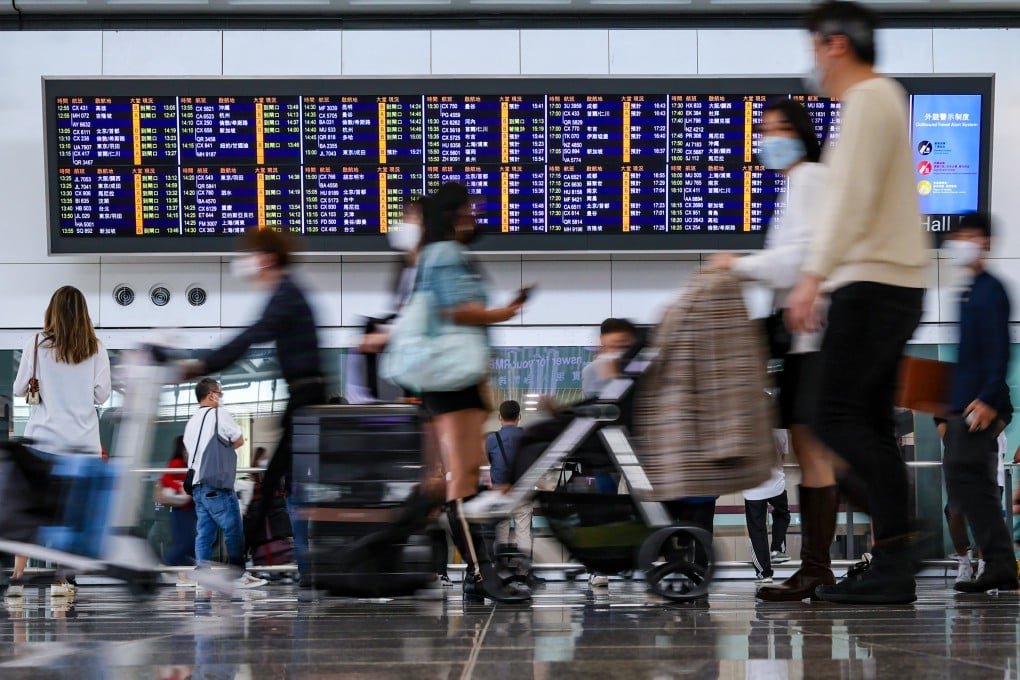
The arrest took place at Hong Kong International Airport following reports submitted by the two victims.
According to police sources, a 34-year-old female passenger stored her bag in the overhead compartment while asleep when a fellow traveller, aged 41, observed the suspect removing credit cards from the luggage.
The witness raised the alarm after noticing the man handing over items wrapped in tissue from his trouser pocket to a seat — later identified as three cards belonging to a 37-year-old male passenger.
Airport District officers responded once the aircraft landed and detained the suspect for questioning.
The case has been forwarded to the Airport District Crime Investigation Team for further inquiries, including how items were removed mid-flight and the potential link to other cabin theft occurrences.
Security officials note that thefts on inbound long-haul flights to Hong Kong have drawn heightened scrutiny this year.
The police urged travellers to lock valuables in carry-on bags and report any missing items immediately to cabin crew and airport authorities.
The suspect remains under investigation and no formal charges have yet been made public.
Passengers are advised to stay vigilant when storing bags in overhead bins and to alert crew or airport staff if suspicious behaviour is observed — in-flight security remains a shared responsibility between airlines and authorities.
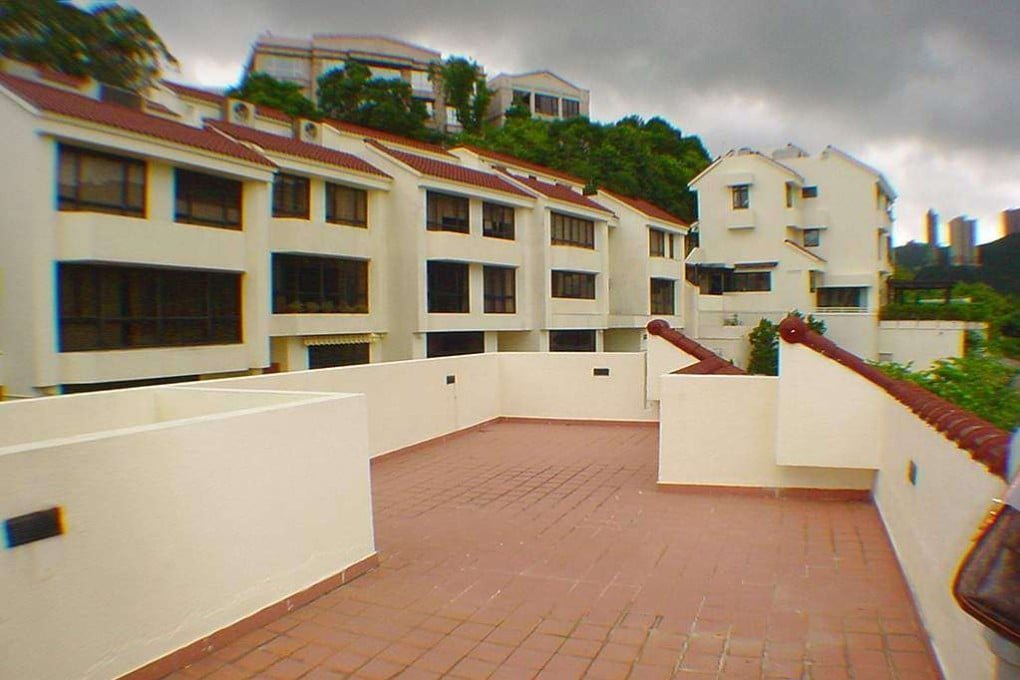
The buyer, whose name matches that of mainland China investor Xu Liusheng, acquired the 3,927 sq ft house on November 14, with handover recorded on Thursday.
The deal translates to about HK$87,089 per square foot, putting it at the high end of the market in even ultra-premium neighbourhoods.
The previous owner paid HK$352 million in 2015, representing a marginal discount of around HK$10 million for the current buyer.
The property is House 2 of an exclusive twelve-unit, three-storey development completed in 1986. It includes gardens, carports and terraces and remains largely detached in character — features increasingly rare in Hong Kong’s dense luxury sector.
The development’s second sale of the year occurred in September, when House 3 changed hands for HK$319 million (HK$82,026 per square foot).
Market observers interpret the transaction as a signal that affluent mainland-linked buyers are re-entering Hong Kong’s luxury segment following years of subdued activity.
Data shows Deep Water Bay listings have recently averaged around HK$86,000 per square foot, while transaction volumes remain extremely low in the enclave — just two units recorded in the past twelve months according to Midland Realty.
The buyer’s name-sharing with Xu Liusheng—known as founder of Shenzhen Kaifu Investment, though that company was recently deregistered—has drawn scrutiny, though there is no public evidence confirming the two are the same individual.
Nonetheless, the appearance of mainland capital at these elevated price levels continues a broader narrative of cross-border asset flows into Hong Kong’s most exclusive real estate.
The purchase underscores the appeal of Deep Water Bay’s combination of beachfront locale, low-density housing stock and prestige, as well as the continuing grip such trophy assets hold over ultra-high-net-worth buyers.
It also reinforces Hong Kong’s resilience as a global luxury real-estate destination despite a challenging broader market.
Analysts caution that while a few headline deals offer reassurance, wider volume recovery remains unclear amid higher interest rates, tighter lending and regulatory visibility for giant transfers.
Nevertheless, for the moment, marquee purchases such as this serve as important barometers of renewed confidence in Hong Kong’s top-tier housing segment.
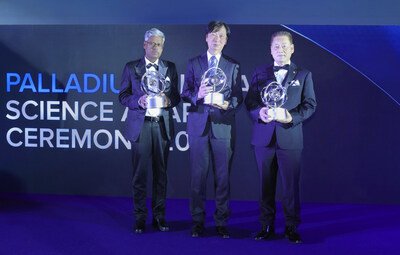
Established in 2025, the competition attracted nearly one-hundred submissions from more than thirty countries, covering fields from alternative energy and nanotechnology to medicine, chemistry and environmental technology.
The award’s three categories—Best Scientific Development, Best Scientific Article and Best Applied Concept—shared a total prize fund of US$350,000.
In the Best Scientific Development category, Chao‑Jun Li, Distinguished James McGill Chair Professor at McGill University (Canada), won first place for a palladium-based catalyst that converts methane and carbon dioxide into methanol at ambient temperature, offering a potent route to greenhouse-gas utilisation.
Second place went to Makoto Fujita of the University of Tokyo and Institute for Molecular Science (Japan), whose work on self-assembling palladium nanostructures opens material pathways for advanced electronics and biomedicine.
The Best Scientific Article award was captured by Natesan Thirupathi of Delhi University (India) for a major organopalladium chemistry study enabling greener pharmaceutical processes.
A runner-up prize went to Michael Joseph Krische of the University of Texas at Austin (United States) for his method combining hydrogenation and coupling via palladium.
The Best Applied Concept award went to Safa Faris Kayed of Prince Sattam bin Abdulaziz University (Saudi Arabia) for “PalladClear™”, a palladium-based in-situ wastewater treatment system capable of degrading industrial dyes and recovering metals, addressing pressing environmental and resource-recovery needs.
Backed by the China Precious Metals Industry Committee (CPMIC) and other international partners, the award emphasises applications’ real-world scale-up potential and industrial relevance—a theme echoed by chair of the International Expert Council, Francis Verpoort, who highlighted palladium’s evolution from a commodity metal into a strategic functional resource.
The competition’s next edition is slated to launch in spring 2026, as organisers aim to cement the award as a global benchmark in advanced-materials innovation.
Meanwhile, Hong Kong’s hosting of the event underscores its ambition to position itself at the intersection of science, industry and global research collaboration.
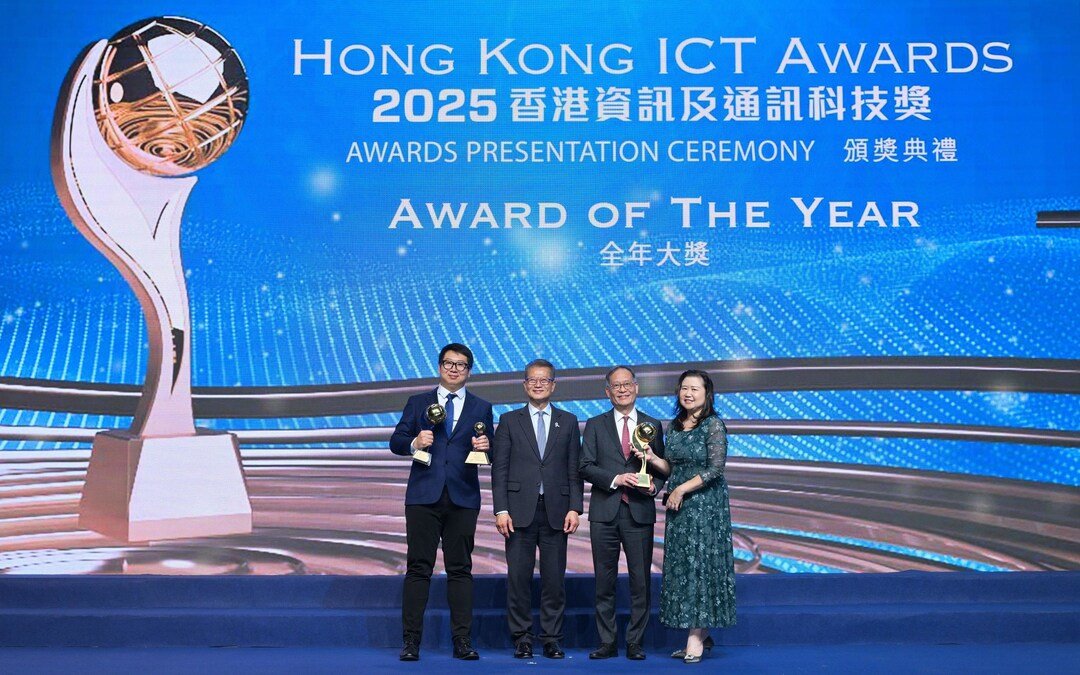
Financial Secretary Paul Chan presented the top accolade.
Mr Chan underscored the importance of the awards in setting “new benchmarks for excellence” and emphasised the role of artificial intelligence (AI) as a core industry for Hong Kong.
He noted that the award-scheme now includes a “Best Use of AI” winner in each of its eight categories, reflecting the government’s strategy to position AI as a growth engine and upgrade traditional sectors.
Established in 2006, the Hong Kong ICT Awards recognise local innovations in information and communications technology (ICT) and help winning solutions access Mainland China and overseas markets.
The 2025 competition featured eight categories organised by industry associations under the Digital Policy Office.
In addition to SmartMore’s win, Grand Awards were presented to: Morph Workshop for Digital Entertainment (Wind Goes On); FINLOOP Finance Technology Holding Limited for FinTech (All-IN-ONE Virtual Asset Trading and Real-World Asset Solutions); Entoptica Limited for ICT Startup (SLOPE device); MEGA Automation Ltd for Smart Living (Smart Hostel & Facility Management System); Airport Authority Hong Kong for Smart Mobility (Hong Kong Air Import SmartCollect); Ellen Li District Elderly Community Centre with partner organisations for Smart People (Smart Hub: Telecare Project for Rural Villagers of North District); and student team CHUNG Ho Chun/LEE Pak Nin/CHU Wing Sze Nicola for Student Innovation (ArtInSight).
Professor Paul Lam, chairman of the Grand Judging Panel and president of Hong Kong Metropolitan University, congratulated the winners and said they “demonstrate excellence in enhancing quality of life and delivering benefits to society”.
He added he looked forward to seeing how their ideas are implemented effectively.
Prize packages offer winners not only trophies and recognition but also access to incubation space at Hong Kong Science Park and Cyberport, and potential seed-funding opportunities via City University of Hong Kong’s HK Tech 300 Seed Fund.
For SmartMore, the win showcases its industrial-AI vision-model platform as a local home-grown innovation with global relevance and potential market expansion.
SmartMore’s portfolio includes deep-learning platforms, vision sensors and AI-powered robots for manufacturing, aligning with Hong Kong’s ambition to become an AI and smart-industry hub.
The 2025 awards thus reflect a broader shift in Hong Kong’s tech ecosystem: a move from pure invention to commercial deployment of AI-enabled solutions across business, public sector, and social use cases.
Winners such as SmartMore may now leverage both the recognition and government-backed support to scale their solutions regionally and internationally.
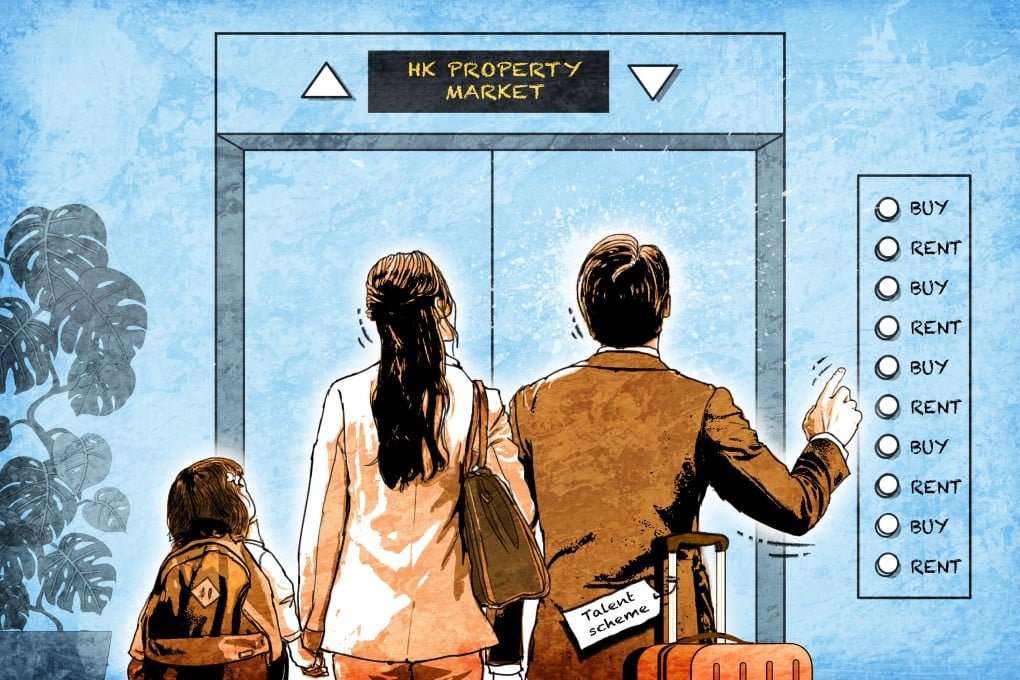
Their two sons, both aged ten, settled quickly into an international school nearby and the family says they intend to stay long-term.
They represent a wave of nearly 90,000 professionals admitted since the initiative’s launch in late 2022, many bringing families and renting homes across the city.
The scheme—designed to attract high-income earners and graduates of top universities—has drawn significant numbers.
Official data show that by the end of 2023 around 65,000 applications had been submitted, with thousands arriving to join Hong Kong’s workforce and rental market.
For the housing sector, the implications are substantial.
Rents have reached record highs with the influx of newcomers hungry for quality housing and schools, and analysts observe that demand is shifting from local household formation—an historically shrinking segment—to external professionals.
One veteran property strategist estimates that mainland-investors may soon exceed 50 per cent of all transactions, with talent-scheme arrivals forming a core element.
Yet the transition from renting to home buying remains uncertain.
Many of the new arrivals say purchasing a property is a future goal after settling children and careers.
While the government offers stamp-duty relief to eligible new-comers under the scheme, local data show that many are still in rental units and only a minority have converted into buyers.
Some policy observers caution that the scheme’s long-term success will depend on retention—whether these professionals stay beyond their initial visas—and their integration into the housing market in ways that support stable home-ownership rather than speculative demand alone.
Others point to challenges: local residents feeling squeezed in rents, schooling and housing, and the risk that high-income newcomers reshape the property market in ways that outpace broader affordability.
With Hong Kong’s residential market at a pivotal juncture—home-ownership among local families stagnating as birth rates fall—the talent-scheme arrival cohort offers both an opportunity and a test.
If they convert from renters to homeowners, they could form a durable foundation for housing demand.
If not, the scheme risks anchoring a new rental population rather than building roots.
For now, families like the Chens are signing long leases and placing children in schools.
Home-purchase decisions may come later, but their intent to stay in the city suggests a meaningful shift in Hong Kong’s demographic and housing trajectory.
The meeting, held in Beijing and also attended by HSBC veteran Peter Wong Tung-shun and Xu Qifang, executive deputy director of the Hong Kong and Macau Affairs Office, marks the second high-level engagement between the official and the bank’s senior leadership within eight months.
The Hong Kong and Macau Affairs Office did not release details of the discussion.
However, in a previous meeting in April, Xia described HSBC as an ‘‘important bridge’’ in Sino-British relations and urged the bank to leverage its global platform to promote both China and Hong Kong.
HSBC has recently restructured to make Hong Kong a top strategic priority in its global network, underscoring the city’s significance to the bank’s Asia-centred model.
Analysts say the two meetings signal Beijing’s intent to consolidate the bank’s role in supporting domestic high-quality development and the financial hub’s status.
The timing also aligns with HSBC’s recent move to increase capital investment in Hong Kong and intensify its mainland China exposure under Elhedery’s Asia-first strategy.
Observers will now watch whether HSBC’s next steps reflect Beijing’s expectation of active participation in the city’s international financial growth.
While the lack of formal disclosure leaves specific commitments unclear, the repeated attendance of senior Chinese and HSBC executives indicates that the bank remains central to Beijing’s efforts to strengthen Hong Kong’s global connectivity and integrate financial services across the region.
Myolie Wu Hang-yee’s ascent from Hong Kong television favourite to a recognised name across mainland China reflects a rare blend of linguistic talent, adaptability and sustained artistic discipline. Fluent in Cantonese, Mandarin, English, Japanese and Taishanese, she succeeded where many Hong Kong performers have struggled, turning language into a strategic advantage in a competitive and evolving entertainment market.
Her breakthrough on the mainland arrived in 2020 during the second season of the reality programme Everybody Stand By. Wu impressed judges and viewers alike by delivering a scene from the 2014 film Dearest in Anhui dialect, a linguistic challenge she embraced with rigorous preparation and repeated study of the source material. The performance won her the season’s top award and amplified her reputation beyond Hong Kong.
Wu had already secured an extraordinary legacy at home. In 2011, she starred in three of TVB’s five highest-rated dramas of the year — The Rippling Blossom, Ghetto Justice and Curse of the Royal Harem. Her run culminated at the TVB Anniversary Awards, where she became the first actress in the broadcaster’s history to claim three major honours in one evening: best actress, most popular female character, and the audience-voted title recognising elegance. The achievement earned her the enduring moniker “Triple TV Queen”.
Her cross-border success is widely seen as the product of her disciplined work ethic and her ability to navigate different cultural and creative environments. As mainland productions continue to grow in scale and global reach, Wu’s career stands as an example of how Hong Kong performers can build new momentum through versatility and sustained craft.
With the election of Takaichi as leader of the ruling party earlier this month, Tokyo is preparing sweeping regulatory changes — including reclassifying cryptocurrencies as financial products under the Financial Instruments and Exchange Act and moving toward a flat tax regime of around 20 per cent on crypto gains.
These developments come amid heated competition in Asia for dominance in Web3 and digital-asset finance.
Hong Kong has long been positioning itself as the region’s leading crypto centre, having passed a stable-coin ordinance, green-lit cryptocurrency exchange-traded funds and launched a Web3 subsidy scheme.
Yet industry observers note that Hong Kong’s strict licensing, heavy liquidity-reserve requirements and opaque regulatory timeline create friction for crypto firms seeking clarity and global scale.
In contrast, Japan’s new policy framework — combining tax reform, regulatory clarity and a large retail market — offers an attractive alternative for firms and investors.
For example, the acquisition of a 40 per cent stake in Binance Japan by PayPay Corp underscores how Japan’s digital-asset ecosystem is gaining momentum.
Hong Kong’s standing in the race may also be affected by its evolving political and legal alignment with mainland China, which some investors view as a source of long-term jurisdictional uncertainty.
While the city remains a focal point for Web3 investment, its competitive edge may erode if regulatory burdens deter new entrants.
Analysts say the key question now is whether Hong Kong will adapt its regime to stay ahead or concede ground while Japan consolidates its global digital-asset ambitions.
With Tokyo doubling down on stimulus, innovation and infrastructure under Takaichi’s pro-growth agenda, the balance in Asia’s crypto hub competition appears to be shifting.
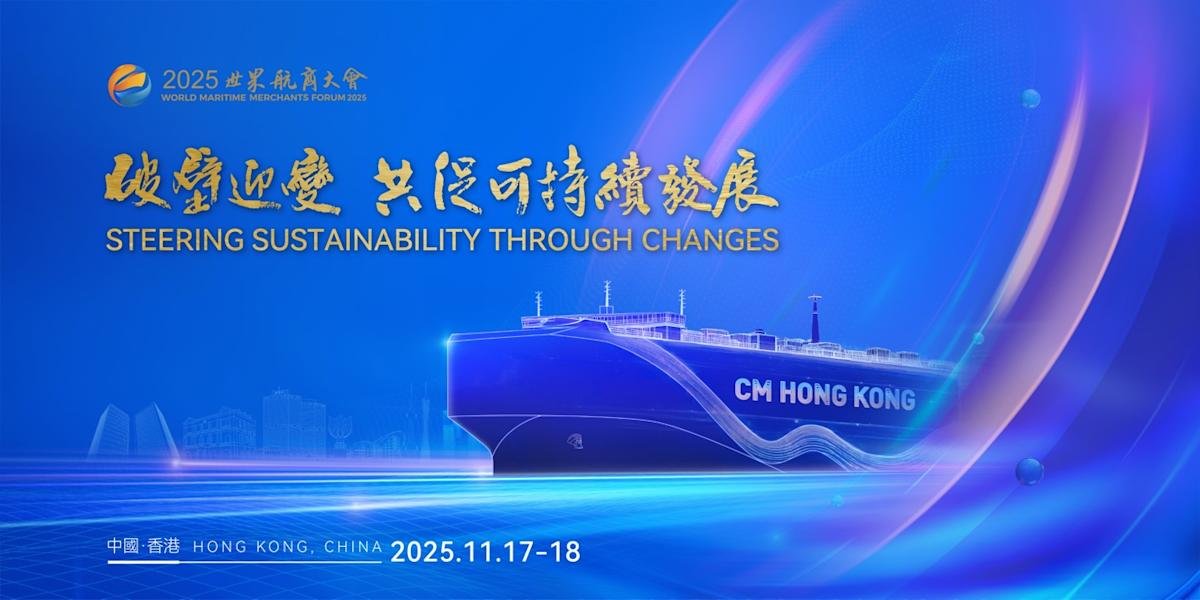
The event, themed “Steering Sustainability Through Changes”, attracted over 1,300 leaders and experts from across the global maritime value chain.
At the opening ceremony, John Lee, Chief Executive of the Hong Kong Special Administrative Region, affirmed the city’s role as a stable, reliable and dynamic maritime hub in an era defined by climate change, geopolitical shifts and rapid technological innovation.
He highlighted Hong Kong’s advantages—its common-law jurisdiction, free-port status, low-tax regime and proximity to mainland China’s green-fuel supply chain—as key to the transformation of shipping into low-carbon, digitally enabled operation.
Leung Chun-ying, Vice-Chairman of the National Committee of the Chinese People’s Political Consultative Conference, said Hong Kong must embrace China’s new round of opening-up and assume the role of “super-connector” between global shipping enterprises and mainland markets.
He argued that the city should become an origin and incubator for emerging maritime industries and rules, including green-shipping corridors, smart logistics and financing innovation.
The forum’s agenda spanned shipping markets, port and logistics infrastructure, maritime law and insurance, decarbonisation pathways and digital transformation.
One session announced the launch of national standards for life-cycle greenhouse-gas intensity of marine fuels and verification frameworks, signalling a concrete step toward the industry’s net-zero ambitions.
The Hong Kong government, represented by Transport and Logistics Secretary Mable Chan, took the opportunity to unveil policy measures: the establishment of the Hong Kong Shipowners Mutual Assurance Association; extension of tax concessions to high-value maritime services and commodity trading; and development of a “rail-sea-land-river” intermodal cargo network linking inland China with global supply chains.
The gathering reinforced Hong Kong’s strategy to leverage its clustering of maritime finance, law, ship-management and port services, while pushing into green bunkering, smart shipping and deepened integration with the Guangdong–Hong Kong–Macao Greater Bay Area.
With the industry under pressure from shifting trade flows and regulatory demands, the forum underscored that sustained collaboration, innovation and investment are now imperatives for shipping’s next era.
Hong Kong Maritime Week continues through 22 November with more than fifty events across the ecosystem, consolidating the city’s positioning as a global maritime capital and a leading platform for the sector’s green and digital transformations.

The strategy centres on developing ultra-premium integrated commercial assets in key Asian gateway cities, bolstered by a capital-recycling target of at least US$4 billion by end-2027 and up to US$10 billion over a ten-year period.
:contentReference[oaicite:1]{index=1}
In the first half of 2025, underlying profit (excluding China build-to-sell provisions) rose 11 per cent to US$320 million, supported by contributions from Singapore and strengthened asset valuations.
Net debt fell to approximately US$4.9 billion and gearing held at around 17 per cent, underscoring financial discipline.
:contentReference[oaicite:2]{index=2}
However, Hong Kong remains a material challenge: office rents in Central contracted, with average Grade A rents falling to HK$95 per square foot per month from HK$103 a year earlier.
Vacancies in its Central portfolio stood at 6.9 per cent on a committed basis by mid-2025, better than the broader market but still a drag on income.
:contentReference[oaicite:3]{index=3}
To fund the strategic pivot, the group completed the sale of selected floors in One Exchange Square for ~HK$6.3 billion (US$810 million) and launched a US$200 million share buy-back programme, marking 33 per cent progress toward the recycling target.
:contentReference[oaicite:4]{index=4}
Management confirmed the build-to-sell business is being wound down and future capital will focus exclusively on ultra-prime commercial assets.
While full-year underlying results are expected to be lower than last year, the company emphasises its longer-term direction remains unchanged.
:contentReference[oaicite:5]{index=5}
Through a mix of recapitalisation, disciplined leverage and geographic diversification, Hongkong Land is recalibrating its business in an era of real-estate transition while maintaining its ambition to lead in Asia’s gateway cities.
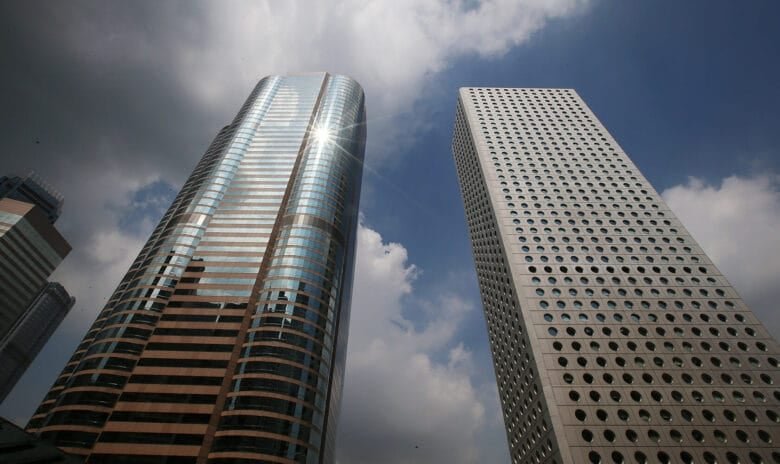
Committed vacancy for the Central portfolio fell to 6.4 per cent from 7.6 per cent a year earlier, with physical vacancy at 7.5 per cent, yet overall rental income and performance remained under pressure.
The group observed that average rents in Grade A offices across Central and Admiralty declined by 5.3 per cent from end-2024 to 30 September, having previously reported the Central portfolio average at HK$95 per square foot per month for the first half of the year, down from HK$103 a year earlier.
Despite the fall in underlying profit, Hongkong Land continued to execute its capital-recycling programme: in April it sold key floors and retail space at One Exchange Square for HK$6.3 billion and in October completed the sale of Southeast Asian developer MCL Land for approximately US$579 million (net proceeds US$657 million).
Those disposals already represent about fifty per cent of the group’s target of US$4 billion in recycled capital by end-2027.
The company said its financial position remains robust, with net debt reduced to US$4.4 billion and gearing at 15 per cent.
In its half-year results earlier this year, it recorded a profit of US$221 million compared with a loss of US$833 million a year earlier.
However, Hongkong Land reiterated that full-year underlying results, excluding provisions, are expected to be lower than the prior year.
In addition to the Hong Kong office market challenges, the company noted softening buyer sentiment in the mainland China residential sector and announced it would conduct a year-end review of its build-to-sell inventory in China—a business segment the group has exited future investment in.
The quarter’s results reflect the difficulty of prime commercial property markets in Hong Kong even as vacancy rates improve, and underline the firm’s strategic pivot toward recurring income streams and asset-recycling initiatives.
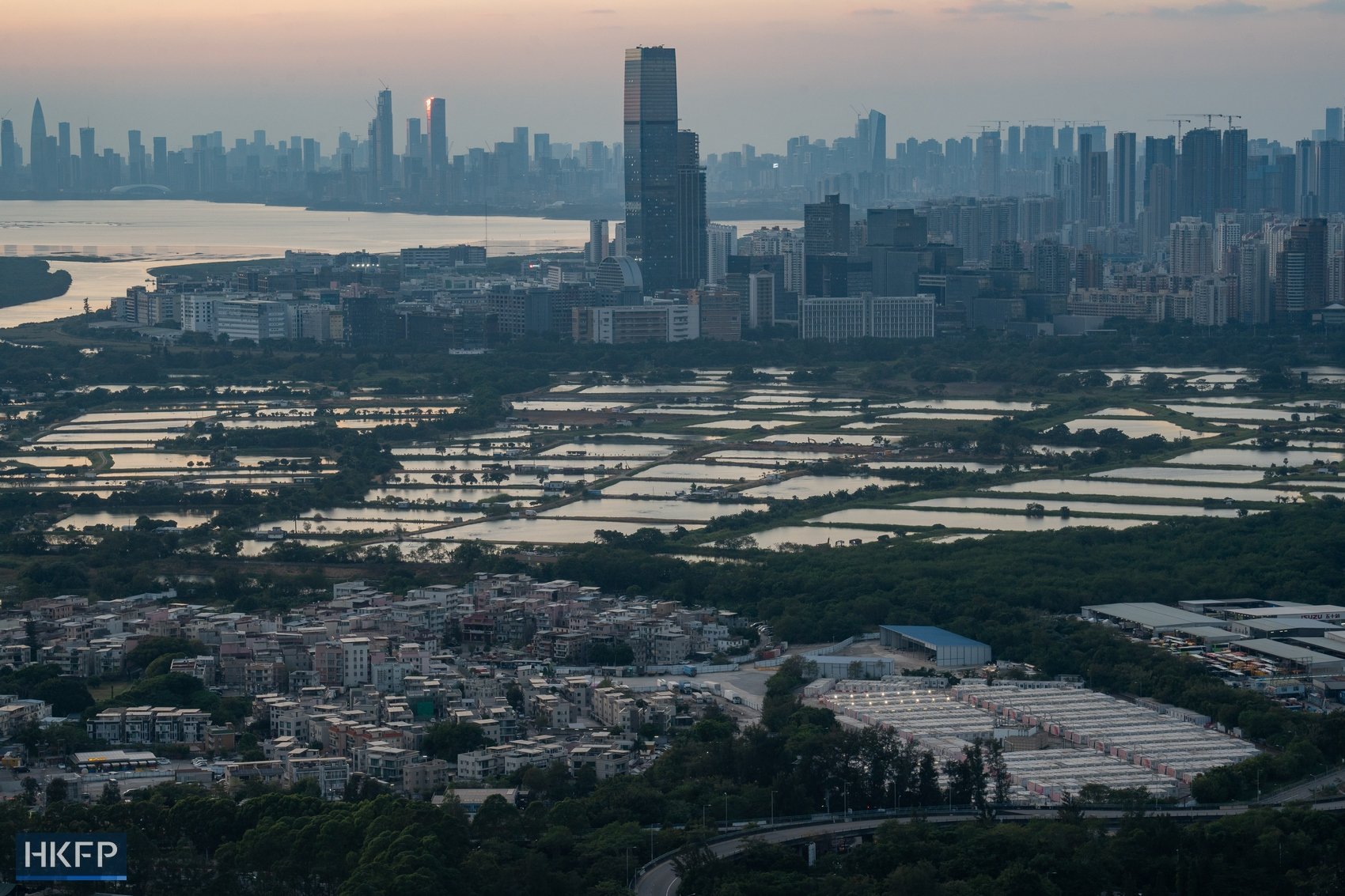
The conceptual outline published by the Innovation, Technology and Industry Bureau identifies a site of some 210 hectares earmarked for high-value industries near the Shenzhen border, to be delivered in five phases over the next decade.
The planned entity would operate as a “platform company” owned by the government but empowered to partner with private-sector investors and companies, enabling a faster, market-driven approach while maintaining strategic oversight.
Government officials said this model is informed by previous development structures established for Hong Kong’s science parks.
Secretary for Innovation, Technology and Industry Sun Dong described the project as a “golden opportunity” for Hong Kong’s industrial and technology ecosystem, citing longstanding constraints on land availability as a barrier to growth.
The government estimates that development of San Tin could contribute HK$250 billion annually to Hong Kong’s gross domestic product and create 300,000 jobs.
The conceptual outline outlines specialised industry sectors for the technopole, including life and health technologies, robotics, artificial intelligence, new materials and new energy.
It emphasises leveraging the site’s proximity to Shenzhen and the wider Guangdong-Hong Kong-Macao Greater Bay Area to foster manufacturing, innovation and global collaboration.
While the government intends to publish the full development blueprint later this year, preparatory work is already under way.
The Hong Kong Science & Technology Parks Corporation has launched a campus initiative called “INNOPOLE” at the site, with first phase construction expected in early 2027 and more than 20 firms expressing early interest.
The scheme comes against a backdrop of environmental scrutiny: the development overlaps areas near the Sam Po Shue Wetland Conservation Park, and authorities say planned mitigation measures include bird corridors and low-density provisions to protect ecology.
The decision to set up a dedicated development company signals the government’s intent to combine public responsibility with private-sector agility, aiming to position Hong Kong’s northern region as a global I&T hub.
The detailed implementation framework, land-release schedule and investment incentives will follow in upcoming policy announcements.

The co-location with German manufacturer BMW and Chinese electric-vehicle maker Xpeng underscores Carro’s ambition to merge premium retail, technology and after-sales service in one destination.
The facility offers a comprehensive suite of services: the 7th and 8th floors serve as an experience centre where customers can browse luxury and continental vehicles, while the 5th floor hosts Carro Care’s after-sales operations, including pre-MOT inspections, maintenance and refurbishment for a wide range of cars including new-energy vehicles (NEVs).
Co-founder and Group CEO Aaron Tan said the company is committed to transforming the perception of the used-car sector in Hong Kong by delivering transparency, quality and value.
He emphasized the investment in technology and infrastructure to enable a one-stop shop for buying, servicing and selling vehicles.
Garry Yu, CEO of Carro Hong Kong, added that the new flagship will strengthen its online-to-offline model, allowing customers to enjoy full lifecycle support—from certified inventory to financing, insurance and after-sales—all under one roof.
“It’s not just Carro Certified cars we’re offering; it’s peace of mind,” he stated.
Renowned actor and automobile enthusiast Moses Chan attended the opening event in his capacity as Carro’s Celebrity Ambassador for Hong Kong, Singapore and Malaysia—an appointment announced in September.
Chan remarked that he was “incredibly honoured” to represent Carro and looked forward to supporting the brand’s promise of expertise across buying, servicing, financing and insurance.
The new venue reflects Carro’s broader growth trajectory: present in seven markets and reporting audited gross profit of US$111 million and EBITDA of US$32 million in FY 2025, the startup is building its presence in Hong Kong through both offline infrastructure and digital innovation.
The opening of the BMW House flagship marks a significant step in its ambition to become the trusted partner in used-car ownership across Asia-Pacific.
The showroom is located at 163 Ma Tau Wai Road, To Kwa Wan, Kowloon, and opens with a customer-promotional campaign offering up to HK$1,000 in fuel or EV charging vouchers for qualifying vehicle purchases during the launch period.
With this flagship, Carro seeks to raise the bar for the second-hand market in Hong Kong, signalling confidence in the region’s premium used-car demand and the shift toward NEVs.

The service, operated in partnership with Raya Airways and serving Malaysia’s northern manufacturing cluster in Penang, is designed to better handle time-sensitive shipments from the region’s technology and semiconductor sectors.
Penang has become a focal point for global electronics investment, leveraging a mature ecosystem, business-friendly infrastructure and the “China + 1” strategy that is driving firms to diversify manufacturing beyond China.
Malaysia’s exports in electronics and electrical goods are expanding rapidly and confirm logistics providers’ decisions to scale capacity.
DHL’s move aligns with its broader Malaysia growth strategy and air-cargo network expansion, noting the country as one of the high-growth markets in its global outlook.
The company cited customers’ increasing use of express shipments and the need to link Penang more effectively to Hong Kong’s international trading gateway.
The upgraded freighter’s improved payload and range enable more direct service and better connect Penang-based manufacturers to key trading partners in Asia and beyond.
DHL emphasised that this capacity investment underscores its commitment to the Malaysian market at a time when the region is gaining prominence in global value chains.
With this route enhancement, DHL reinforces its role as a logistics backbone for high-value manufacturing exports and signals confidence in Southeast Asia’s evolving supply-chain geography.
The development brings stronger connectivity for Penang and continued global expansion of DHL’s express-air infrastructure.
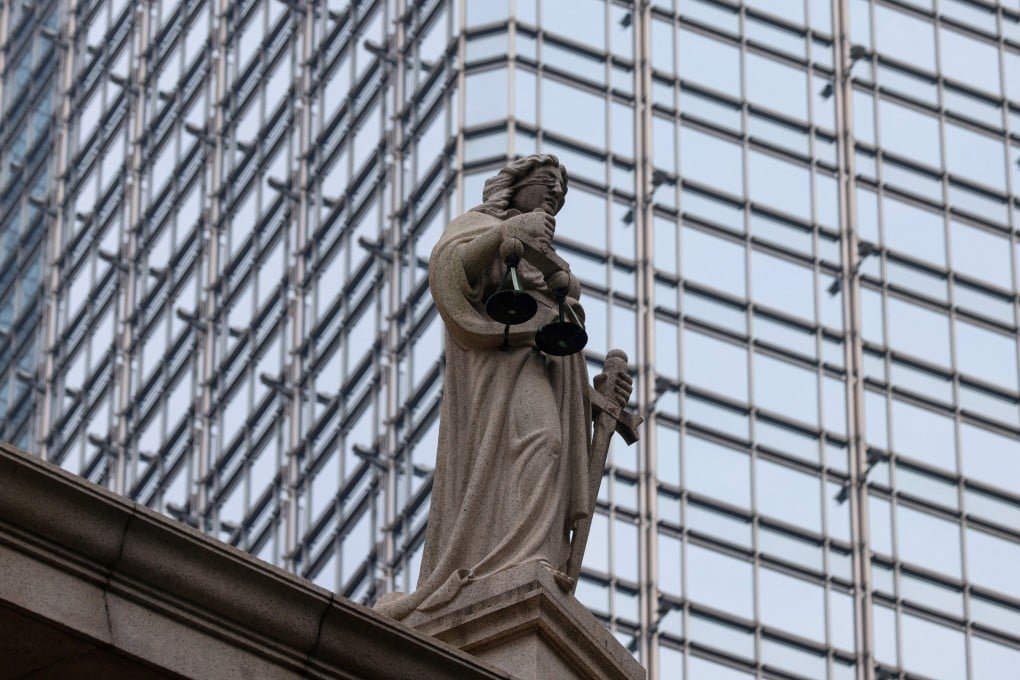
Instead of a criminal conviction, she was placed on a two-year bind-over order and required to post a bond of HK$2,000 (US$256), with charges withdrawn by the Department of Justice.
This lenient outcome stands in stark contrast to a separate case from earlier this year in which a woman convicted of forging a Columbia University degree and falsifying academic records to enter the University of Hong Kong received a 240-day prison sentence.
Li’s application, submitted in October 2023, allegedly included a counterfeit Bachelor’s degree in Economics and Business Administration from Monash University, Australian student-visa documents bearing another person’s name, and other immigration records.
The Immigration Department approved her entry permit on 2 November 2023 and she entered Hong Kong on 22 December 2023. After verification by the Australian Consulate-General, authorities determined the credentials were not legitimate and she was arrested on 23 May 2025.
Under the TTPS, launched in December 2022 to attract top graduates and high-earning professionals, presenting false documents or making false representations is punishable under Hong Kong law by a maximum of HK$150,000 fine and up to fourteen years’ imprisonment.
Despite this, Li’s case was concluded with a bind-over rather than a custodial sentence or conviction.
Legal experts and media observers note that while the prosecution says its approach complies with the Prosecution Code and serves the public interest, the differential outcomes invite criticism regarding transparency and consistency.
In a related development, the Immigration Department uncovered a syndicate accused of arranging at least 22 TTPS applications using forged overseas degrees and other documents.
In July 2025, five Hong Kong residents and 13 mainland applicants were arrested, some alleged to have paid up to HK$2.5 million each to obtain false academic credentials and immigration support.
The case involving Li has prompted calls for the Department of Justice to review its prosecution policy on immigration-document offences and ensure that sentencing and outcomes uphold the principle of equal treatment under the law.
Without consistent deterrence and transparency, public faith in Hong Kong’s rule of law and immigration integrity may be undermined.
The Hang Seng Index climbed 0.1 per cent to 25,867.63 at the noon trading break, ending the decline that began last Friday, while the Hang Seng Tech Index nonetheless slipped about 1 per cent.
On mainland China, the CSI 300 Index rose 0.3 per cent and the Shanghai Composite Index added 0.4 per cent.
Within Hong Kong’s market, key technology names led the advance: the search-engine company Baidu, Inc. rose 2.3 per cent to HK$113.80, short-video platform Kuaishou Technology gained 1.8 per cent to HK$64.65 and power-tool manufacturer Techtronic Industries Co. Ltd. surged 4.9 per cent to HK$88.15. Dragging the advance were platforms such as travel-booking firm Trip.com Group Ltd., which lost 3.6 per cent to HK$554, and smartphone-and-vehicle maker Xiaomi Corporation, which fell 3.6 per cent to HK$37.44.
The shift in sentiment follows Nvidia’s announcement that it achieved quarterly revenue of US$57 billion — up 22 per cent from the previous quarter and 62 per cent from a year earlier — an outcome that reassured investors over the durability of the AI rally.
Markets responded with a modest weakening of the UK pound against the US dollar and a reduction in two-year UK gilt yields, as interest-rate futures priced in faster cuts during 2026.
Strategists at HSBC Holdings plc noted that although valuations in Chinese technology stocks have climbed significantly this year, they remain “well within the range” of past years and stop short of what has historically qualified as a bubble.
The broader rebound in Asian technology and equities suggests that the region may regain momentum even amid global economic concerns and persistent US-China trade tensions.
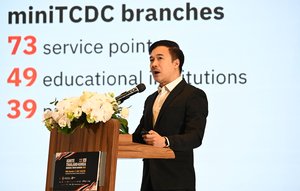
According to the Creative Economy Agency (CEA), the creative economy now represents US$44.5 billion, just over eight percent of the country’s gross domestic product, with nearly 990,000 people employed and over 93,000 business models operating nationwide.
Speaking at the “Ignite Thailand-Korea Business Forum” in Bangkok, the agency’s director asserted that the shift reflects a broader transformation of Thailand’s economy into one driven by technology, intellectual property and creative value.
“People often assume economic success comes from manufacturing or heavy industry,” he said, “but Thailand’s creative economy already accounts for slightly more than eight per cent of GDP and shows how powerful creativity can be as a national growth driver.”
Within the creative economy, the content industry — spanning film, television, digital media and gaming — was identified as particularly high in creative intensity.
Although it currently accounts for less than seven percent of the broader creative-economy segment, its estimated broader economic impact stands at around US$21 billion, driven by advertising, entertainment services and digital media.
Thailand has also seen international successes: Thai-produced titles such as the thriller “Hunger” (2023), drama “Master of the House” (2024) and the Netflix film “Mad Unicorn” (2025) have captured global interest, while the 2024 blockbuster “How to Make a Billion Before Grandma Dies” approaches the milestone of US$100 million in global box office receipts.
The government is scaling up infrastructure to support the sector.
The CEA manages four regional offices and the flagship Thailand Creative & Design Center (TCDC); in the coming three years the agency plans to establish 20 additional TCDC sites nationwide.
It also partners with 49 domestic universities to integrate creative-industry training into curricula and enhance workforce capability.
Thailand has also embraced international collaboration: Thai-Korean and Thai-Chinese co-productions are increasing, including the horror film “The Medium” (2021), animation “Out of the Nest” (2024), and the upcoming “Running Man Thailand,” a joint venture between Korean network SBS and Chinese streaming service iQIYI.
These cross-border projects reflect the country’s ambition to become a regional hub for creative production.
In line with this strategy, the Board of Investment (BOI) has refined policy incentives for creative sectors, offering tax holidays, cash rebates and streamlined permits for foreign specialists in film-post production, gaming and digital content.
The ministry emphasises that the creative economy forms a key pillar of the Bio-Circular-Green (BCG) economic model and is central to achieving Thailand’s long-term growth and diversification goals.
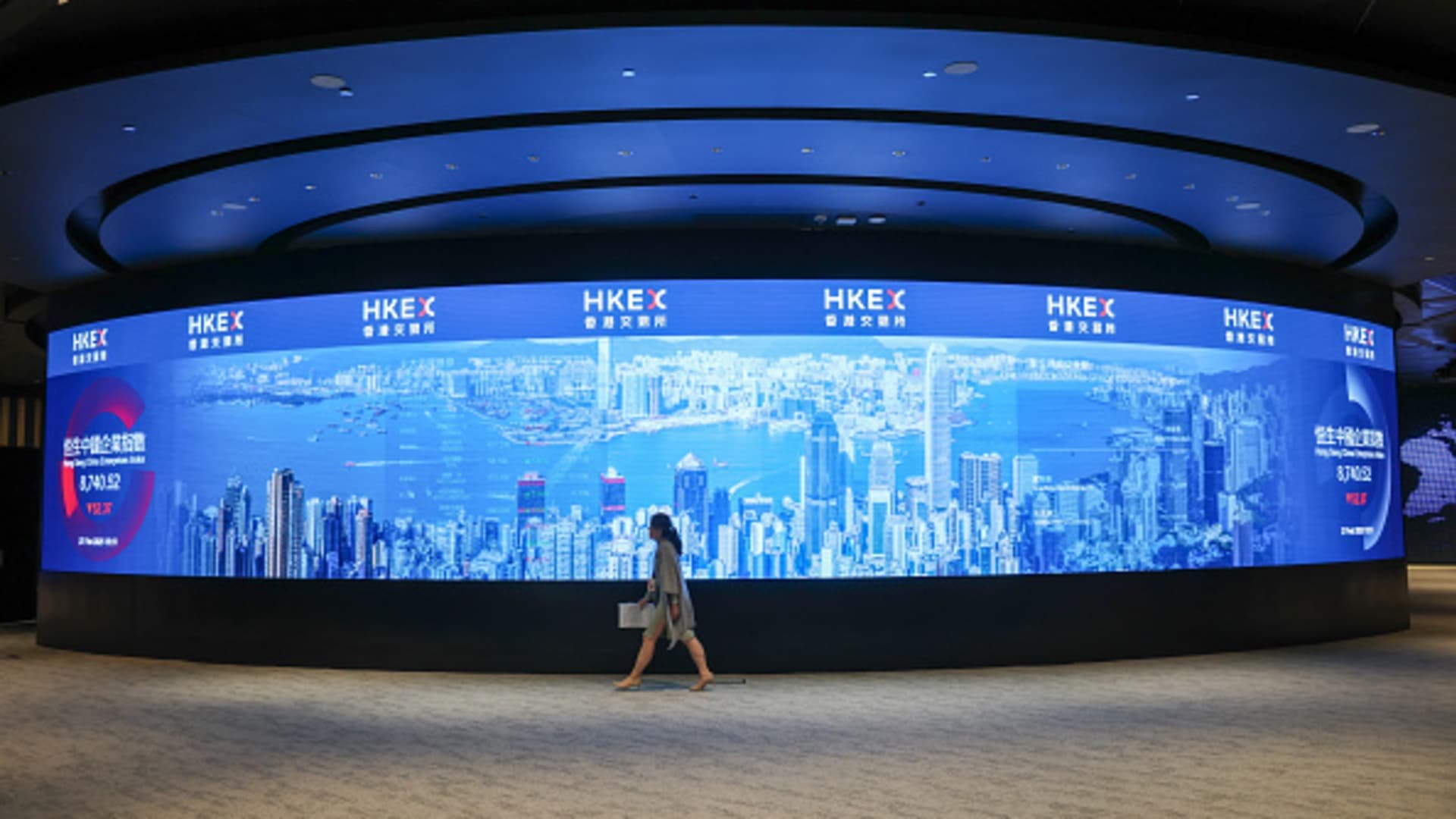
Executives speaking at an industry panel on Tuesday said the strong revival in listings has lifted sentiment, enabling managers to divest assets at more favourable valuations than at any point since 2021.
Companies have raised an estimated $18.2 billion through Hong Kong IPOs this year as of October, putting the city on track to become the world’s largest listing venue.
The Hang Seng Index has gained more than 28 percent this year, far outpacing the S&P 500, adding further momentum for firms preparing exits.
The improved outlook has also encouraged global private equity groups—many of which had shifted to an “anything but China” stance in recent years—to re-engage with the mainland market.
Fund managers noted that consumer-facing companies in China now offer opportunities to “buy growth at a discount,” citing the rapid rise of domestic brands and substantial household savings.
They added that as many global competitors have retreated, valuations for market-leading assets have become more attractive.
Reduced competition has enabled disciplined investors to secure high-quality assets at favourable multiples.
Even with stronger market conditions, the exit environment remains mixed.
Some portfolio companies continue to generate steady cash returns of 15 to 20 percent, providing a cushion while managers wait for the right moment to list.
Yet corporate mergers and acquisitions remain sluggish, and China’s domestic listing rules are still tightly regulated, making Hong Kong a critical release valve for firms eager to return capital to investors.
A key challenge is the growing backlog at the Hong Kong Stock Exchange, which had more than 300 active IPO applications under review at the end of October—up sharply from fewer than 70 applications during the same period last year.
Industry leaders cautioned that delays could hinder plans to capitalise on current valuations, though optimism remains high.
Mainland regulators have pledged to streamline approval processes for overseas listings and deepen financial linkages with Hong Kong, reinforcing the city’s role as China’s primary global market gateway.
Private equity executives expect that as Hong Kong’s recovery strengthens, exit opportunities will widen further, improving both performance and investor confidence.
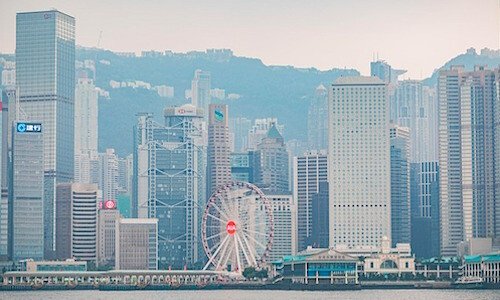
The analysis defines a multi-millionaire as an individual with total net assets exceeding HK$10 million (about US$1.3 million) and at least HK$1 million in liquid assets.
Within this cohort the median total net asset value stands at HK$20.5 million, while the median liquid asset holding is HK$10 million.
The allocation of those assets is split roughly equally between property (51 per cent) and liquid assets (49 per cent).
Among the liquid assets, half is held in investment products and the remainder in cash or deposits.
The report also highlights a subgroup of “emerging centi-millionaires,” defined as individuals holding median liquid assets of HK$50 million or more.
This group shows a more diversified approach to wealth, with higher allocations in funds, bonds and structured products.
Some 35 per cent hold overseas property and 46 per cent prioritise assets that can be transferred to future generations.
Legacy planning is also more prevalent in this cohort, with 59 per cent using life insurance, 53 per cent having wills and 16 per cent establishing family trusts.
The head of wealth continuity and productivity at the financial institution behind the survey described the findings as “invaluable insights,” noting the uptick in the multi-millionaire population and the increasingly sophisticated investment and inter-generational strategies among the ultra-affluent.
The data reflect Hong Kong’s enduring role as a wealth hub and underscore evolving behaviours within its high net-worth segment.
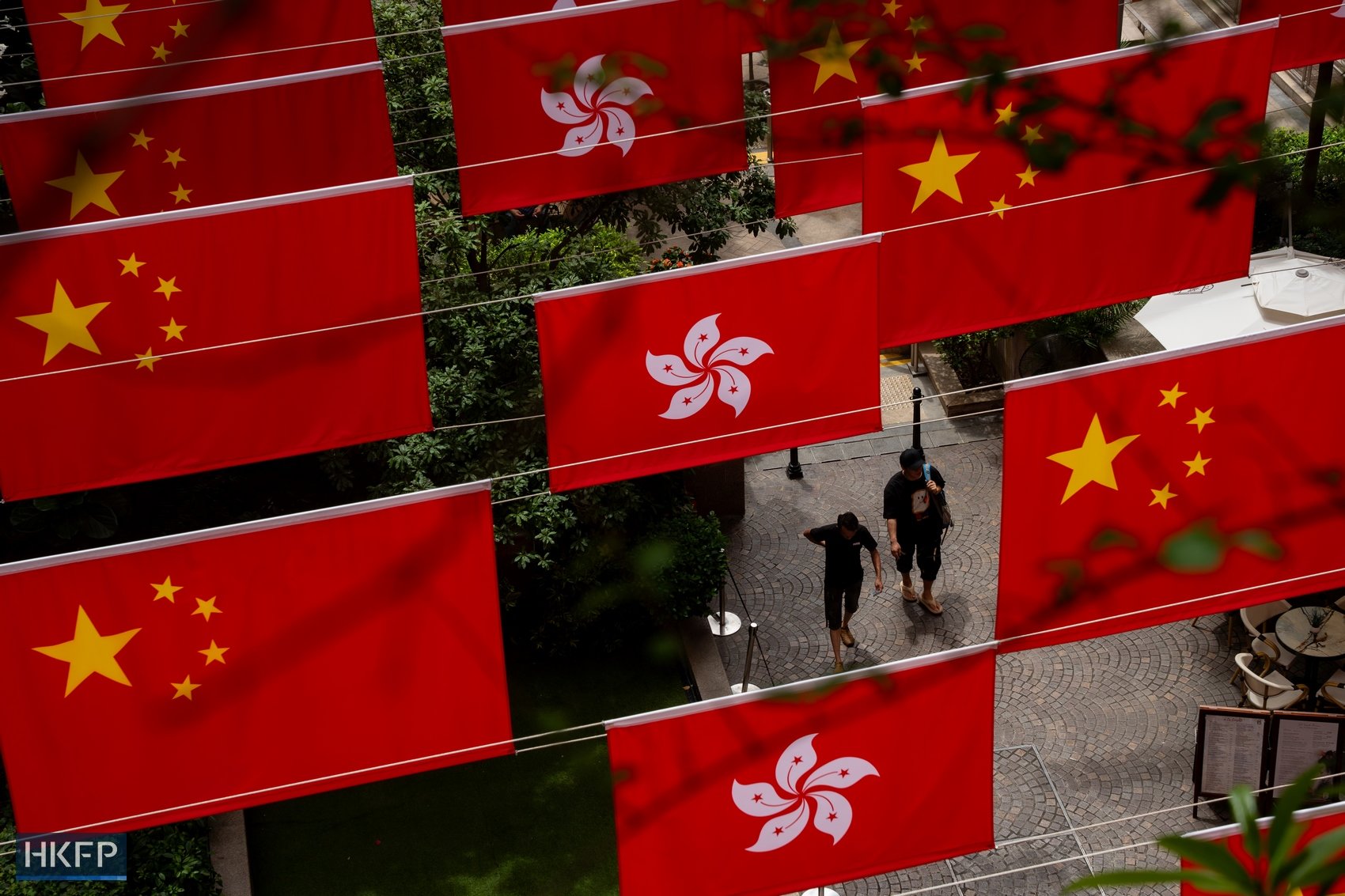
City officials criticised the commission’s recommendation that U.S. lawmakers impose secondary sanctions on Hong Kong financial institutions, arguing the proposal constitutes interference in its internal affairs.
The government highlighted the U.S. trade surplus of about US$270 billion with Hong Kong over the past decade and the presence of more than 1,390 U.S. companies operating in the city as evidence of the close economic ties that “should not be ignored.”
In defending the city’s legal framework, the government reiterated that the Hong Kong National Security Law, imposed by Beijing in 2020, and the local Safeguarding National Security Ordinance (often referred to as Article 23), passed in 2024, “clearly define elements of relevant offences, penalties, exceptions and defences.” It added that law-abiding persons will not inadvertently fall foul of the measures.
On the subject of alleged “extraterritorial” operations against overseas activists, officials argued that the city’s legal provisions align with international practice and said Hong Kong acts only within the parameters of international law.
The statement dismissed the commissions’ claims of the city becoming a hub for sanctions evasion as “absurd and untrue,” and urged the U.S. to stop its interference.
The government emphasised that it complies with United Nations Security Council sanctions but will not impose its own unilateral sanctions.
It characterised the report as “a wanton manoeuvre with politics prevailing over law-based governance.”
The rebuke comes amid intensifying diplomatic tension between Washington and Beijing over Hong Kong’s system of governance and the city’s status as a global financial centre.
As part of the broader context, the city’s authorities assert that successive security laws have restored stability and protected development, while U.S. scrutiny continues to focus on autonomy, rights and rule of law.
The government’s strong response underlines its determination to defend the legal and constitutional changes introduced in recent years.
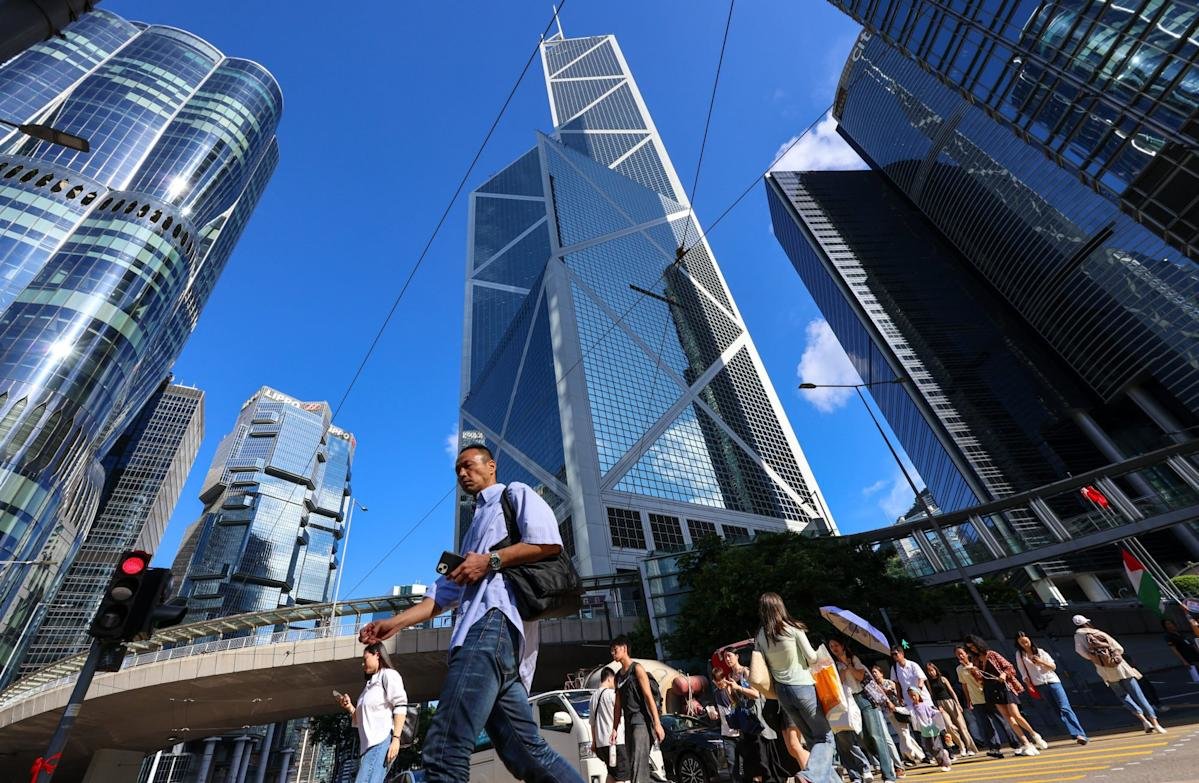
After the U.S. Federal Reserve lowered rates, the Hong Kong Monetary Authority reduced its base rate to 4.25 per cent in October, prompting major banks to lower prime rates and reduce borrowing costs for households.
According to the Hong Kong arm of the credit-reference agency TransUnion, there is a “cautious easing” in lending activity.
Retail sales have begun to rebound, but unemployment remains elevated and wage growth has slowed, causing banks and lenders to maintain a selective approach to new consumer credit.
While some segments are showing improvement, lenders are prioritising higher-quality borrowers and resisting broad loosening of credit standards.
Latest data show unemployment stood at 3.8 per cent in October, down slightly from 3.9 per cent the prior month but still above the pre-pandemic norm.
A survey by Baptist University and other institutions recorded average wage growth of 2.5 per cent this year, down from 3.5 per cent in 2024. Retail sales climbed 5.9 per cent in September, reversing a fourteen-month decline, yet spending patterns remain uneven: while purchases of electrical goods and spending on alcohol and tobacco surged, expenditures on furniture, clothing and footwear contracted.
TransUnion commented that lenders remain cautious because the recovery has not yet reached broad-based strength.
Consumer borrowing is picking up in specific categories but rising delinquency rates among lower-quality borrowers earlier in the cycle have weighed on lender sentiment.
As a result, activity such as credit-card originations and personal-loan growth still reflect restraint rather than a full normalisation of credit supply.
In this environment, banks and non-bank lenders are increasingly favouring revolving credit products and digital banks catering to younger consumers, while maintaining tight underwriting criteria for higher-risk segments.
The selective approach is intended to balance the return of credit growth with prudent risk management as the economy recovers.
Amid this cautious backdrop, the upcoming budget and further interest-rate developments remain key.
For lenders and regulators alike, the challenge will be to support household and business credit without overstretching in a recovery that remains fragile and uneven across sectors.
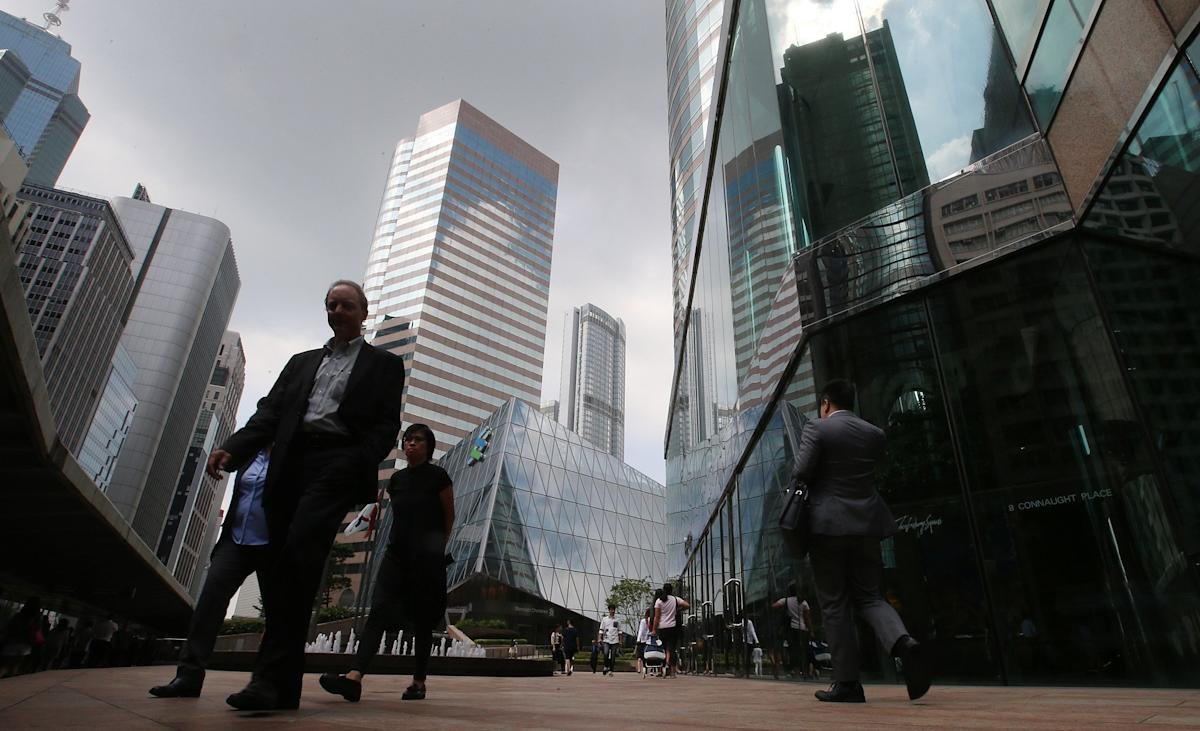
The upward forecast was attributed to growing demand for investment professionals and traders in response to revived market conditions.
According to the managing director of a major recruitment firm in Hong Kong, live job postings across the finance sector have surged by about twenty per cent compared with the first quarter, although conversion into offers remains cautious.
The firm expects hiring to rise by between ten and fifteen per cent in 2026, describing the outlook as “slower but steadier” compared with the head-y growth seen in earlier years.
Official employment figures reinforce the trend: in the second quarter of this year, the city’s finance and insurance industries employed approximately 268,000 people, up 4.5 per cent year-on-year, yet still below the record peak of 287,800 in 2021. Recruiters cited that banks and asset managers continue to prioritise cost efficiency, making hires more selective even as demand returns.
Recruitment leaders noted that candidates remain cautious, too.
Many professionals are reluctant to switch roles given recent years of restructuring and cost-cutting at major firms.
Meanwhile, banks that turned heavily to hiring in 2021-22 only to later implement redundancies are now maintaining a higher bar for talent acquisition.
Against this backdrop, confidence is gradually recovering in Hong Kong’s finance labour market.
The expected upswing comes as Hong Kong reasserts its role as a premier financial hub in Asia.
With the increasing movement of capital, new listings and fund flows across the region, demand for skilled finance professionals in trading, wealth management, risk and regulatory functions is gaining traction.
While total hiring remains below peak levels, the projection for double-digit growth signals a meaningful rebound for employment in the city’s finance sector.
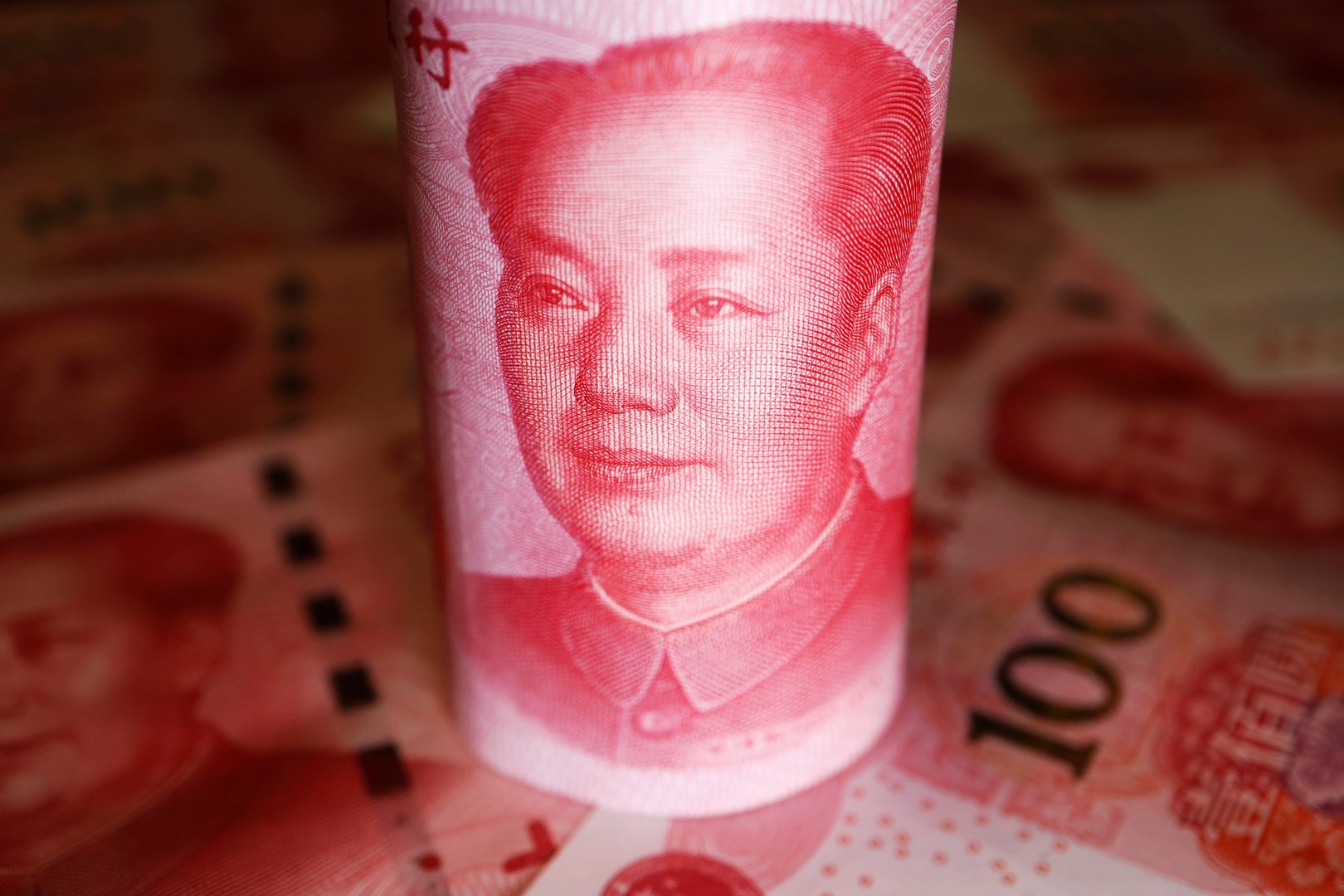
The move forms part of Beijing’s ongoing efforts to strengthen offshore yuan liquidity and promote Hong Kong’s role as a major international yuan-settlement centre.
Issuing these bills allows the central bank to absorb excess yuan from offshore markets and support stable currency-market conditions.
Analysts view the issuance as a clear policy signal: amid global bond-market volatility and concerns about capital flows, the central bank is leveraging its Hong Kong-based market tools to manage liquidity and shape expectations.
By offering short-term and medium-term maturities, it also provides a yield curve reference for offshore yuan assets.
Hong Kong’s financial markets will receive fresh yuan-denominated supply at a time when efforts to deepen monetary-market links between the mainland and the city have accelerated.
The issuance is expected to appeal to institutional investors seeking high-quality yuan-assets outside mainland China.
The participation terms and bid results will be closely watched for indications of offshore demand.
While the move contributes to China’s broader strategy of internationalising the yuan and enhancing Hong Kong’s status as an offshore yuan hub, the central bank retains flexibility to follow up with further issuance or other liquidity tools if needed.
The three-month tenor will mature in February next year and the one-year issues will mature in November 2026, offering a range of investment horizons for offshore yuan holders.
Financial-market watchers will monitor how offshore yuan yields and Hong Kong dollar–yuan cross-rates respond to the tender, and whether other fiscal- or monetary-policy actions accompany the issuance to bolster currency-market stability.
Yet beneath these impressive numbers lies a growing critique from insiders, analysts, and longtime Apple observers: Cook has transformed Apple into what many call a 'poor company with money'—a corporation with mountains of cash but almost no breakthrough innovation.
Since Steve Jobs passed away and Jony Ive departed, Apple’s creative engine has weakened dramatically.
The company that once redefined entire industries with the iPhone, the iPad, and the MacBook now relies on iteration rather than imagination.
Each year brings improved processors, polished designs, and incremental camera upgrades—but no new category that shifts the global technological landscape.
The flagship projects Cook personally backed highlight the problem.
The Apple Car collapsed after years of internal chaos and billions in development costs.
The Vision Pro, while lauded for engineering sophistication, failed to capture mainstream demand.
Apple’s artificial intelligence efforts lag behind competitors, despite urgent restructuring.
Even the much-anticipated iPhone Air—meant to be a lighter, more refined vision of the device—failed commercially, dogged by weak battery life, minimal camera capability, and a price that made consumers question its purpose.
These failures reflect a deeper structural issue: the erosion of Apple’s legendary design culture.
The industrial design team, once the crown jewel of the company, has been hollowed out.
Senior creatives left in waves after Ive’s departure.
Today, the team is smaller, younger, and less influential, reporting directly to leadership focused on operations rather than visionary product direction.
For a company with virtually unlimited financial resources, Apple appears paradoxically constrained.
Competitors lead the foldable-phone market.
Rivals define the era of generative AI.
Other firms take bold risks while Apple refines, adjusts, and responds.
Tim Cook’s financial legacy is undeniable.
He delivered one of the greatest market expansions ever seen in a public company.
Yet critics argue that Apple’s soul—its daring, its originality, its instinct to create the future rather than follow it—has faded.
As speculation grows about Cook’s nearing retirement, the real question is whether Apple can rediscover the audacity that once made it the world’s most imaginative company.
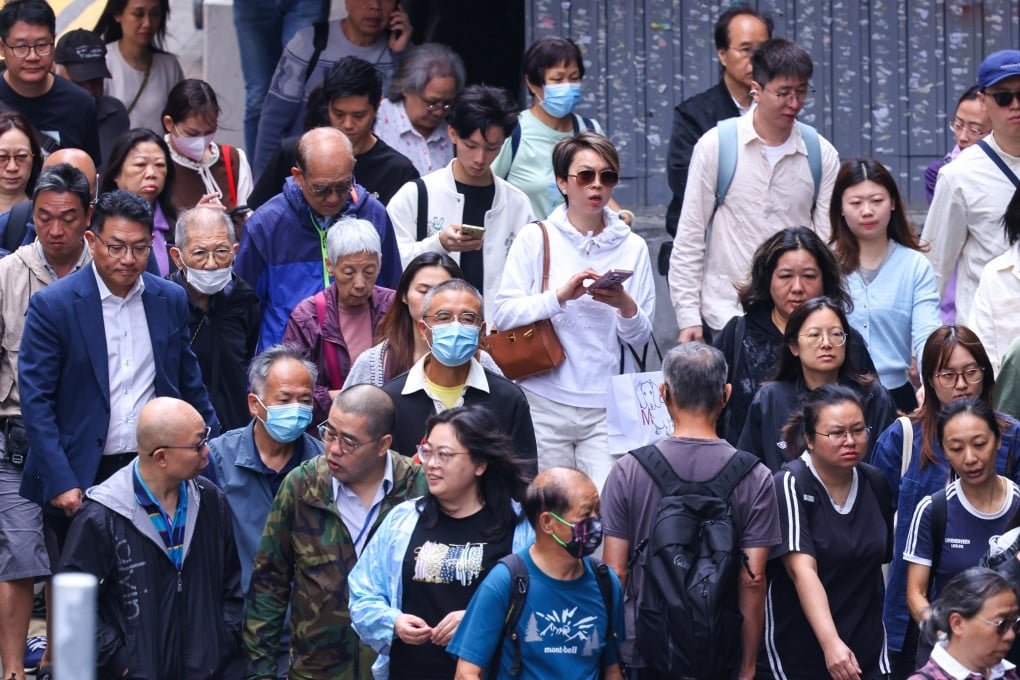
Hong Kong’s seasonally adjusted unemployment rate declined to 3.8 per cent in the August–October 2025 quarter, marking the first fall since mid-2023 and reflecting improved business sentiment and a gradual recovery in consumer confidence.
The number of unemployed persons (not seasonally adjusted) shrank by about 6,000 to 149,600 for August–October, down from 155,600 in the July–September period. Over the same interval, total employment edged lower to 3,672,700 and the labour force contracted slightly to 3,822,300.
Labour and Welfare Secretary Chris Sun said the steady expansion of the city’s economy, combined with strengthened business sentiment and a rebound in consumption, should support the labour market. He added, however, that employment in some sectors will continue to face headwinds from structural transformation.
Analysts caution that the improved reading may reflect seasonal effects, including strong mainland Chinese tourist arrivals during the “Golden Week” holidays and the lead-in to year-end retail promotions, rather than a broad-based labour-market recovery. The rate remains among the highest since 2022, when it reached around four per cent.
Going forward, the city’s employment outlook will depend on whether inbound tourism, consumption recovery and export services can be sustained, and on how quickly sectors such as retail, catering and building maintenance adapt to ongoing economic restructuring.
The available data indicate tentative positive momentum in the labour market, but also underscore the importance of monitoring sector-specific trends and maintaining support for workers in transition.
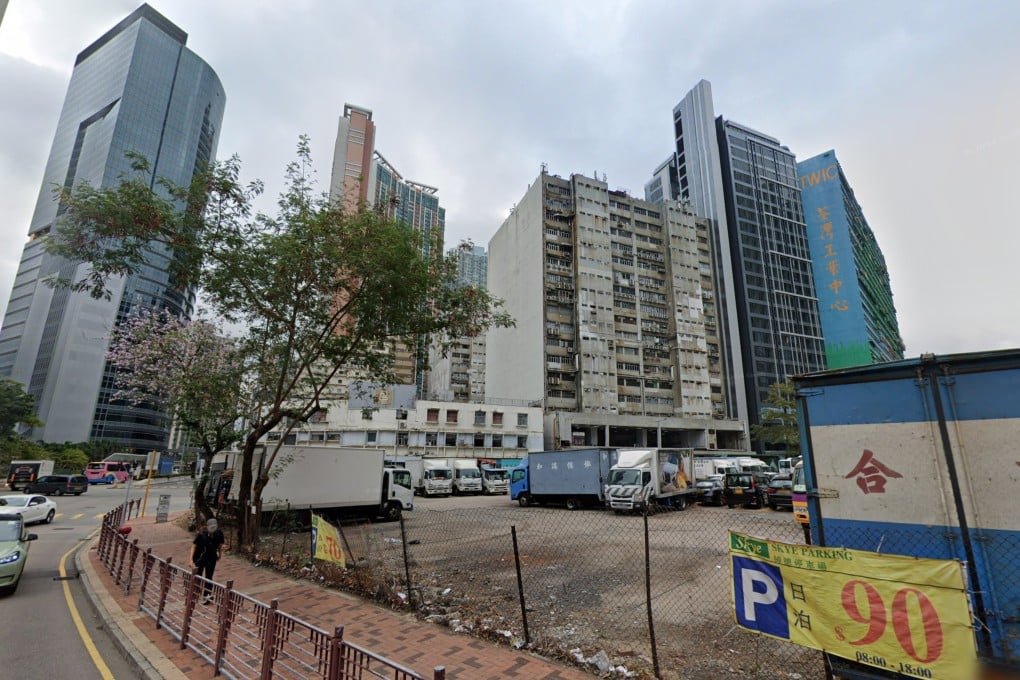
6,515 m²) residential-zoned site at the junction of Wing Shun Street and Texaco Road in Tsuen Wan, New Territories, at a premium of more than HK$2.47 billion (around US$318 million).
The bid surpassed offers from eight competing groups—including Sun Hung Kai Properties, CK Asset Holdings, Henderson Land Development and others—according to official data from the Lands Department.
Chinachem secured a 50-year land grant under the award, allowing the company to reinforce its presence in Tsuen Wan—Hong Kong’s first newly developed town in the 1960s.
The site lies adjacent to the Tsuen Wan West MTR station and Tsuen Wan Park, offering strong connectivity and mature neighbourhood amenities, Chief Executive Officer Andy Cheung said in a company statement.
He added that the forthcoming development will primarily feature small to medium-sized residential units, addressing demand in the area.
The project is expected to yield around 780 units based on planning department estimates for the Gross Floor Area attainable under the zoning and density controls.
Free developer valuation reports suggest achievable selling prices in the local market may range between HK$16,000 and HK$22,000 per sq ft for well-positioned units—a backdrop that underpinned the developer’s competitive bid.
Chinachem, managed through the trust structure inheriting the legacy assets of the late chairwoman Nina Wang, currently holds a diversified portfolio of over six million sq ft across residential, retail, hospitality and industrial assets in Hong Kong.
The company’s latest acquisition in Tsuen Wan complements its existing holdings such as Nina Park and other retail and residential blocks in the district.
Industry commentators note this land parcel reflects a broader rebound in the Hong Kong land-tender market—particularly for well-located residential sites near transport hubs—and signals that developers remain willing to commit significant capital amid a cautious but structurally improved housing environment.
For Chinachem, the acquisition both enhances its landbank and positions it strategically for upcoming residential supply pipeline in a district undergoing transformation.
The developer will now advance detailed planning, community requirement discussions and foundation works ahead of launching sales.
The full development timetable and selling prices will be announced upon planning approval.
Chinachem’s move underscores its confidence in the long-term Hong Kong property market and its strategic focus on transit-connected, amenity-rich locations.
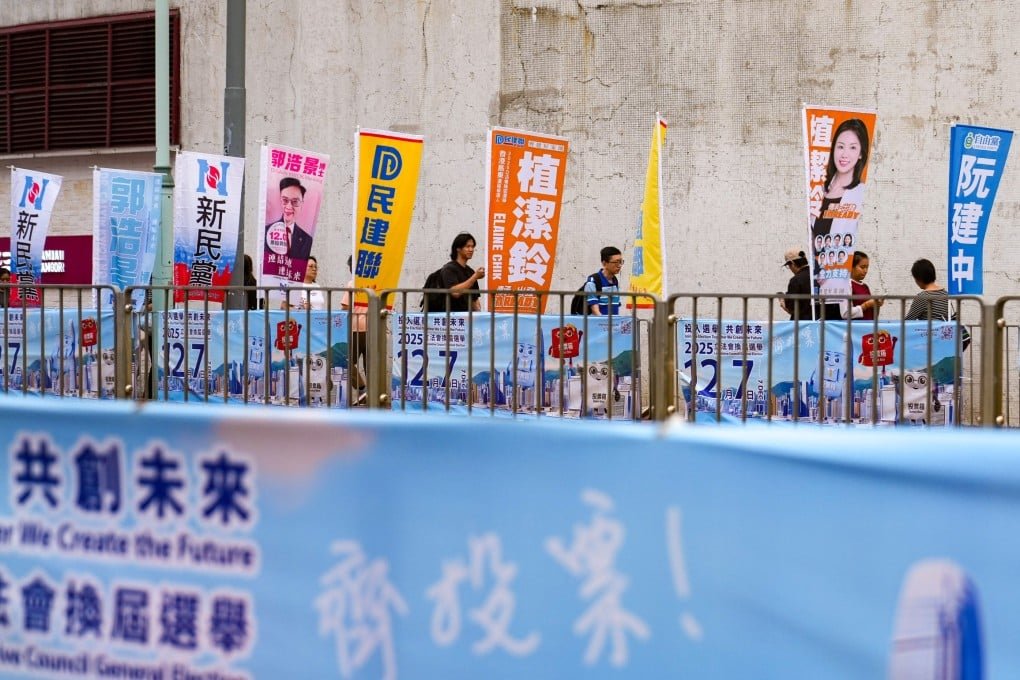
In an open letter released on social media on Tuesday, Hong Kong Executive Council convenor Regina Ip Lau Suk-yee described the city’s current democratic system as a “precious gift” bestowed upon its seven million residents by Beijing. She appealed to citizens to cast their ballots in the upcoming Legislative Council election and emphasised that forms of so-called democracy running contrary to the Basic Law or the country’s Constitution would not survive.
Ip noted her nearly fifty years of public service, dating back to her entry into the colonial civil service in 1975, and recalled that before the city’s return to Chinese sovereignty in 1997, residents had “absolutely no opportunity” to participate in Legislative Council elections. She framed the present system as a marked improvement and urged Hong Kongers to cherish the arrangements under the framework of “one country, two systems.”
Her remarks follow a posting by the Hong Kong and Macao Affairs Office of a summary of the 2021 white paper titled Hong Kong Democratic Progress Under the Framework of One Country, Two Systems, which reaffirmed the central government’s commitment to the long-term goal of universal-suffrage elections for the territory while emphasising a model of “democracy with Hong Kong characteristics.”
By linking her appeal to vote with the official narrative, Ip reinforces the legitimacy of the city’s electoral system as anchored in central-government design. Her letter positions participation in the December 7 Legislative Council election not only as a civic duty but also as an affirmation of the constitutional order.
As the election approaches, Ip’s message may also serve to mobilise support within the pro-government camp and promote voter turnout in a system that currently allows only vetted “patriots” to run, under the revised 2021 electoral framework. The real test for the coming legislature will lie in implementing substantive outcomes under the model she espouses — sustainable economic growth, social stability and effective governance as envisioned in the renewed democratic order.
Ip remains convenor of the Executive Council and chairwoman of the New People’s Party, and has had a major role in the city’s governance since her tenure as Secretary for Security from 1998 to 2003. Her letter thus reflects both institutional backing and personal endorsement of the current political system.

The discussion took place as competition between the two countries intensifies over the strategic and ethical dimensions of AI.
Sun Chenghao, a fellow at the Centre for International Security and Strategy at Tsinghua University, said that regulation of AI in the military domain and a broader governance framework addressing shared risks would create “common ground” for collaboration between the two powers.
He added that major-power engagement was essential for countries in the Global South to join meaningful governance efforts.
Christopher Nixon Cox, a board member at the Richard Nixon Foundation and U.S. panellist, said that bioweapons were “an obvious area” where Washington and Beijing should cooperate to “limit the influence of AI.” He emphasised the risk posed by autonomous research and deployment of AI-enabled weapon systems or dual-use technologies that facilitate rapid proliferation.
Commentators noted that the convergence reflects a rare alignment amid broader U.S.–China rivalry, particularly as each country advances AI systems applicable to defence, intelligence, and autonomous operations.
The alignment comes at a moment when the United States is tightening export controls and investment rules on AI and semiconductors linked to military uses, and China is accelerating its own deployment of AI technologies in defence.
Nonetheless, both experts acknowledged substantial obstacles.
Sun said that despite the shared language of governance, structural divergences in U.S. and China approaches—ranging from multilateral formats to values frameworks—make cooperation “logically difficult.” Cox flagged that trust deficits, verification mechanics and divergent political systems remain central hurdles.
Beyond the military dimension, the forum discussion underscored a larger theme: that governing AI may offer a practical area of engagement for the two countries even while strategic competition remains.
The participants suggested that setting shared limits on weapon-enabling AI, biothreat applications and autonomous systems could build trust and reduce escalation risks.
The Hong Kong forum thus offers a signal of openness to dialogue on defence-linked AI among key stakeholders in both the United States and China.
How far this alignment will translate into binding agreements, verification regimes or shared norms remains to be seen—though the experts agreed a standalone conversation is now both urgent and viable.
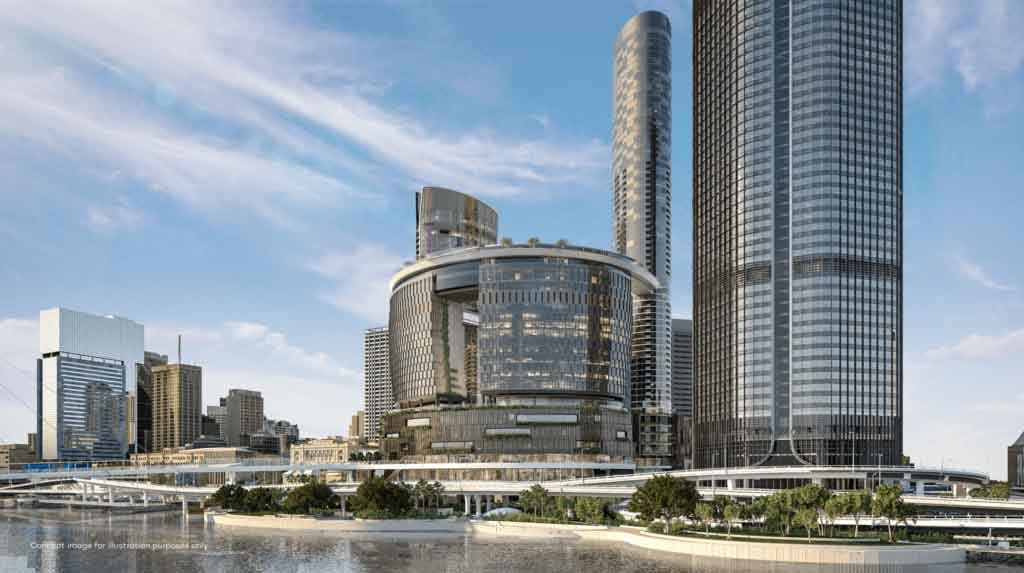
The update emphasises FEC’s continued confidence in recovering loans extended to Star, notably a recent tranche tied to apartment sales at the Gold Coast.
Under the restructure, Star will divest its 50 per cent stake in the Destination Brisbane Consortium (DBC) — the owner of the Queen’s Wharf Brisbane integrated resort — to FEC and CTFE, while acquiring from them key hotel and residential assets in the Destination Gold Coast Consortium (DGCC).
These arrangements replace the previous Heads of Agreement (HoA) originally announced in March 2025.
FEC’s latest disclosures clarify that a loan advanced to Star in relation to apartment sales at the Gold Coast complex remains recoverable under the leave-to-sell and asset-swap structure.
The company states that depending on tower-sale proceeds, Star’s “economic exposure” to the Gold Coast apartment segment is capped at A$35 million (approximately HK$172 million) in the event of HoA termination.
The binding long-form documentation executed in August sets a two-stage completion: Stage 1, the Brisbane stake disposal, targeted by 30 November 2025 subject to regulatory and lender approvals; Stage 2, the Gold Coast consolidation, expected in the second half of calendar year 2026. The restructure removes from Star’s books future equity call-downs at DBC, which were previously estimated at more than A$200 million.
FEC’s statement emphasises that the Gold Coast apartment sales formation (“The Star Residences”) underpin the repayment mechanism for the forwarded loan to Star, and states that the repayments will proceed in accordance with the transfer schedule among the parties.
FEC stresses its “confidence” that the loan will be repaid in full under the agreed terms.
FEC shares dipped modestly following the announcement, reflecting investor caution given Star’s prior instability, but FEC maintains it regards the restructure as a mechanism to de-risk its exposure and crystallise a defined exit path for Star’s Brisbane liabilities.
The company’s message underscores that the restructure is aimed at stabilising asset ownership, shifting capital burden away from Star, and securing repayment flows for FEC and its partner CTFE.

The Hong Kong subsidiary of Swiss-based AMINA Bank AG is now positioned to offer structured exposure to digital-asset markets under Hong Kong’s evolving framework for professional investors.
The licence upgrade, reported in October 2025, comes after AMINA (Hong Kong) had already obtained licences in November 2023 for Type 1 (Dealing in Securities), Type 4 (Advising on Securities) and Type 9 (Asset Management).
The issuance of the more focused Type 1 licence underscores the firm’s intent to deepen its crypto-securities dealing capabilities in the Asia-Pacific hub.
AMINA has highlighted a set-up of “bank-grade” custody services combining hot and cold wallets, hardware-security modules, multi-party computation and offline air-gapped storage with regulatory alignment to the Swiss Swiss Financial Market Supervisory Authority standards.
With institutional demand for crypto exposure growing, the firm sees Hong Kong as a gateway to sophisticated professional-investor access to digital-asset strategies.
AMINA’s recent partnership with listed digital-asset wealth manager Metalpha Technology Holding Limited to launch “Principal Fund I” for qualified professional investors via its Hong Kong arm further amplifies its platform reach in structured and alternative digital-asset products.
Fund entry is limited to investors with a minimum of US $1 million and focuses on equities and derivative instruments tied to the crypto ecosystem.
Despite the progress, AMINA must navigate evolving regulatory requirements in Hong Kong, including anti-money-laundering and counter-financing-of-terrorism rules for virtual-asset service providers, plus potential future requirements for stable-coins and tokenisation activities.
As Hong Kong accelerates its push to become a major digital-asset hub with relaxed rules and new licensing regimes, AMINA’s licence upgrade signals both opportunity and competition ahead for institutional crypto banking in the region.
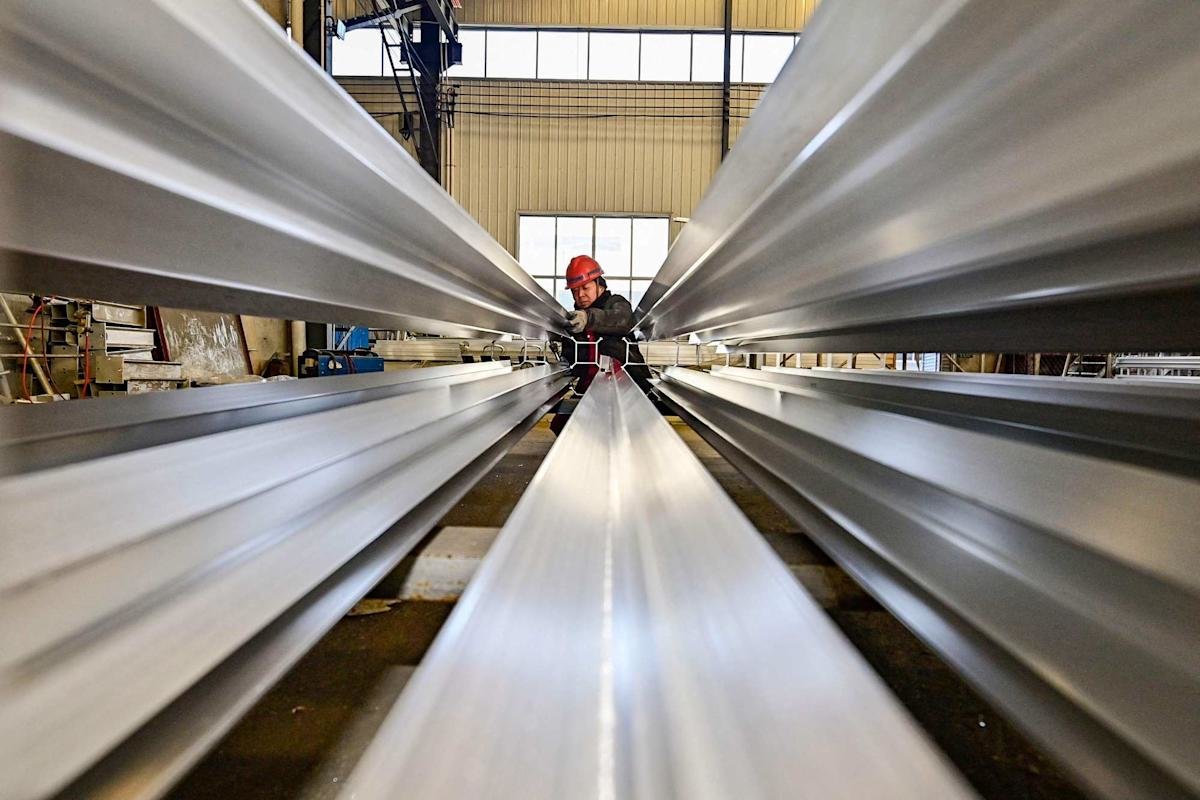
The placement would account for about 4 per cent of the company’s enlarged share capital following the transaction.
The company said in its filing that the fundraising has been timed to capitalise on strong market conditions and to “raise further capital for the company, while at the same time broadening its shareholder and capital base.” Proceeds will be used to fund new projects and strengthen the balance sheet by repaying debt.
The sale is occurring in the context of a buoyant aluminium market: margins have surged thanks to supply constraints, and aluminium is trading near three-year highs.
Analysts at Citigroup have raised their 12-month target price for China Hongqiao in light of the strength in the sector and the company’s disciplined approach to new capacity expansion.
The share price rose strongly earlier this year before slipping back around the announcement.
The placement price of HK$29.20 is around 2.2 per cent above the average closing price over the past 30 trading days, offering existing investors a modest premium while providing new entrants a meaningful discount.
In addition to tapping equity markets, China Hongqiao has earlier this year resumed share buy-backs, is issuing convertible bonds and has flagged more capital-markets engagement.
The combination of strong sector tailwinds, capital-market access and corporate discipline positions the company to leverage the aluminium cycle and strengthen its leadership in the industry.
Whether the placement attracts sufficient institutional participation and disciplines new governance assumptions will be closely watched by investors.
The company’s next steps will include finalising the placement details, confirming allocations, and deploying the proceeds into the announced growth and debt-repayment initiatives.

Less than a day later, the postal agency reversed the suspension, stating on Wednesday that it would “continue accepting all international inbound mail and packages from China and Hong Kong Posts.” The move followed the implementation of new US tariffs on Chinese goods and the elimination of the “de minimis” customs exemption for low-value parcels entering the United States.
In its reversal notice, the USPS said it and U.S. Customs and Border Protection are working to institute an “efficient collection mechanism” for the new China tariffs seeking to minimise disruption in package delivery.
The postal service did not offer a detailed explanation for the initial suspension.
Observers note that the brief disruption raised concerns for Chinese-origin e-commerce shipments, which had relied heavily on postal-routing from China and Hong Kong.
The rapid U-turn also underscored how rapidly trade-policy tensions can affect logistics flows.
The episode places heightened attention on how the United States will implement new tariff and border-control regimes tied to Chinese imports and how carriers manage sudden regulatory shifts.
While the postal service emphasised that letters and flat mail were not included in the pause, parcel shippers in China and Hong Kong reportedly scrambled to route around the announcement.
For American consumers and businesses relying on cross-border parcel delivery, the disruption—even if short-lived—illustrated vulnerability to policy shocks.
The USPS noted further that it will work with authorities to implement the collection of new import duties while keeping delivery channels open.
The incident comes at a time of intense trade and security competition between the United States and China, with Beijing issuing retaliatory tariffs and Washington signalling broader efforts to tighten oversight of low-value imports.
The aviation and logistics sectors are now monitoring whether further adjustments will be required to adapt to evolving customs and postal-service frameworks.

The underemployment rate remained unchanged at one-point-six percent.
During the same period, total employment decreased by around 1,800 to 3,672,700, while the labour force contracted by about 7,800 to 3,822,300.
By comparison, in August–October 2024 the labour force stood at 3,827,900 and total employment at 3,707,100.
The number of unemployed persons (not seasonally adjusted) dropped by approximately 6,000 from 155,600 in July–September 2025 to 149,600 in August–October.
Labour and Welfare Secretary Chris Sun commented that the “solid expansion of the Hong Kong economy, along with the steadfast improvement in business sentiment and the gradual recovery in consumption confidence, should provide support to the labour market.” He noted, however, that “the employment situations of some sectors would continue to face challenges from economic restructuring.”
Though the overall jobless rate edged down, analysts caution that the fall may reflect seasonal factors such as increased tourism during the “Golden Week” and year-end retail demand rather than a broad-based labour-market rebound.
The modest contraction in the labour force and employment also indicates that some workers remain sidelined.
Looking ahead, the labour market’s trajectory will depend on sustained consumer recoveries, external demand for exports and the pace of change in sectors undergoing structural transformation.
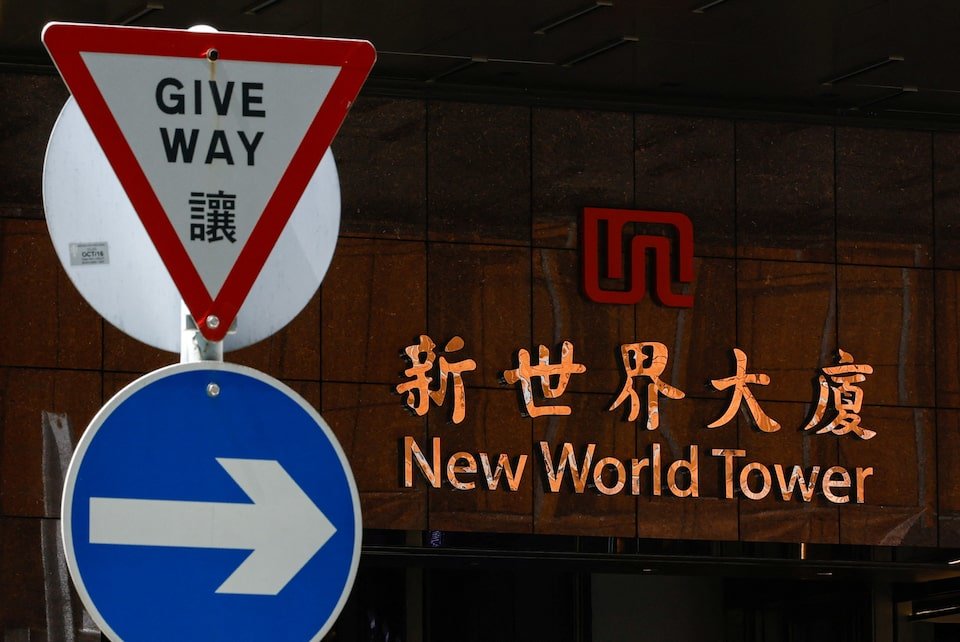
Hong Kong-listed property developer New World Development announced on 18 November 2025 that it expects to reduce about US$1.3 billion of debt following an early deadline set for its dollar-bond exchange offer. The bulk of this reduction comes from perpetual bonds.
The firm launched the exchange offer earlier this month, targeting up to US$1.9 billion, with the objective of cutting a third of its outstanding perpetual bonds and improving its cash flow in the face of a challenging property-and-financing environment.
According to the submission to the Hong Kong stock exchange, the company expects that after early settlement it will swap US$1.02 billion of perpetual bonds and US$29.9 million of senior notes. Bondholders who tendered by the early deadline (17 November) received a cash incentive of US$20 for each US$1,000 bond and a smaller haircut on their exchange terms.
Terms of the offer include issuing new perpetual bonds carrying a 9 per cent coupon, in exchange for bonds with coupons from 4.125 per cent to 6.25 perpetuals, with a haircut around 53 per cent (50 per cent for early-tenders). For senior notes due 2027–2031, carrying coupons between 3.75 per cent and 8.625 per cent, the company proposes new senior notes due 2031 with coupon of 7 per cent and haircuts between 12 per cent and 32.5 per cent.
The offer will expire on 2 December 2025 unless extended, and a second deadline for the early-tender terms has been set for 25 November. The restructuring move follows earlier efforts by the company, including deferring coupon payments (about US$77.2 million on four perpetual bonds) and securing large refinancing facilities, including a US$11.24 billion loan package.
New World’s executives said the exchange initiative will enable “significant deleveraging immediately” and improve the company’s balance sheet flexibility. In the broader context, the Xin Hong Kong property sector remains under pressure from weak demand, high borrowing costs and falling asset valuations.
Successful execution of the bond swap is viewed as critical not only for New World’s survival but also for stabilising Hong Kong’s wider property and debt markets, given the company’s size and exposure. The company’s next steps will include monitoring participation rates, closing the offer, and then executing the new bond issuances under the agreed terms.
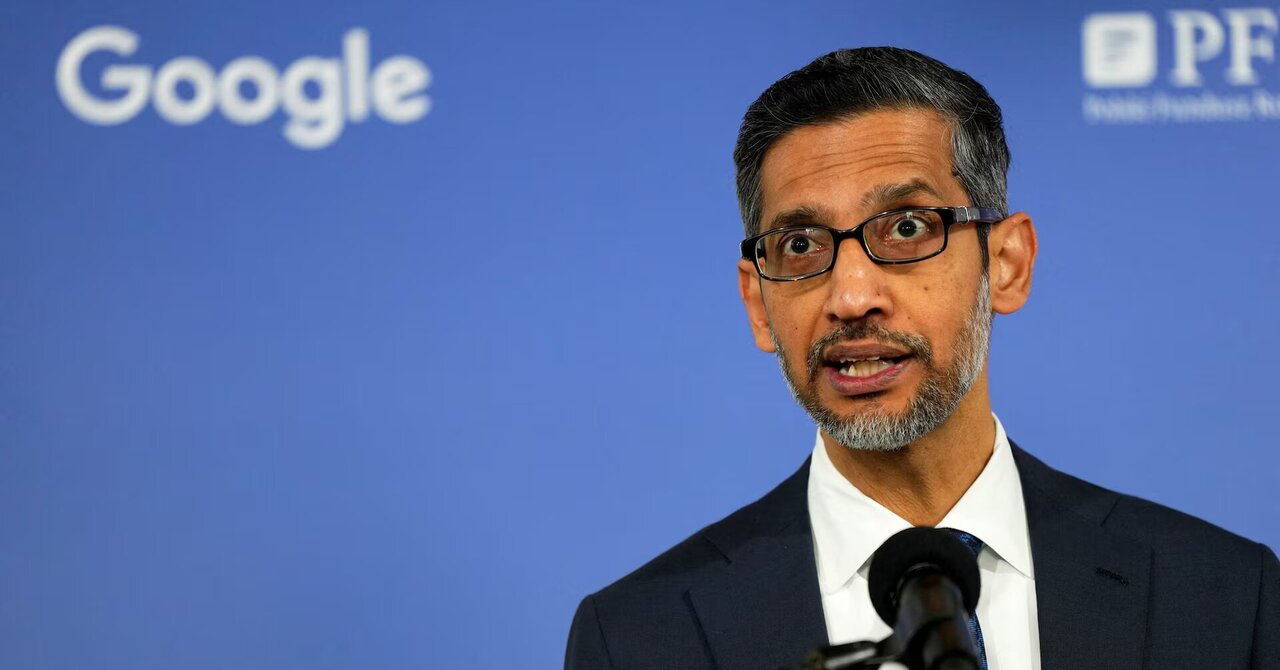
In a wide-ranging discussion on the state of the industry, Pichai said that the current rush into AI investment carries unmistakable signs of excess.
While the technology is transformative, he cautioned, no firm should assume it is protected if the market overheats and contracts.
He described the present moment as one of Silicon Valley’s great historical inflection points, comparable to the arrival of the personal computer, the rise of the internet and the revolution brought by mobile computing.
Yet, unlike earlier cycles, the speed and magnitude of AI expansion is unprecedented.
Google’s annual capital expenditure has surged from under thirty billion dollars only four years ago to more than ninety billion this year.
Across the wider sector, Pichai noted that companies have poured well over one trillion dollars into building the chips, data centres and specialised infrastructure needed to fuel AI.
Despite this momentum, Pichai acknowledged that the frenzy contains stretches of irrational enthusiasm.
He reminded audiences that the internet boom of the late 1990s also saw massive overinvestment, even though the underlying technology ultimately reshaped global society.
AI, he suggested, will follow a similar pattern: profound, world-changing, but not immune to sharp corrections.
If the industry overshoots, he said plainly, “no company is going to be immune—including us”.
Pichai also emphasised the enormous environmental and logistical burden imposed by generative-AI systems.
Their energy requirements are already forcing governments to rethink national infrastructure, from power grids to semiconductor manufacturing.
Without large-scale public investment, he warned, demand for AI may outpace the world’s ability to support it, putting long-term reliability at risk.
Beyond market dynamics, Pichai addressed a concern now familiar to anyone using AI tools: trust.
He urged users not to treat chatbots or generative systems as sources of unquestioned truth.
These models, he said, remain prone to errors, hallucinations and inconsistencies.
AI can enhance human capability, but it should never replace critical thinking or verification.
Economists observing the sector note a widening gap between diversified giants—Google, with vast search and cloud revenue—and small AI-only firms whose valuations are soaring far beyond their commercial footing.
Some investors expect a coming shakeout resembling the early-2000s dot-com correction, where weaker firms collapsed while the strongest emerged even more dominant.
Others warn that exotic financing structures and speculative lending are already seeping into the AI ecosystem.
Still, many industry leaders agree with Pichai that AI’s long-term impact is undeniable.
The real question is how much instability the market must endure before the technology reaches maturity.
For societies around the world—families, workers, governments—the coming years will carry both extraordinary promise and unavoidable turbulence.
And as the world accelerates into an AI-driven era, Pichai’s warning lands with unmistakable clarity: innovation may be unstoppable, but stability is not guaranteed.

U.S. consumers continue to scour the market for authentic Labubu dolls from the Hong Kong-based Pop Mart brand—items that vanish from shelves in minutes and later resell for thousands of dollars.
In response, major American toy companies and big-box retailers have adopted the “blind box” model for the holidays, offering less expensive mystery figures priced between six and ten U.S. dollars and aimed at both children and adults.
The blind-box format—where the buyer does not know which figure is inside the sealed packaging—has proven highly effective at driving repeat purchases.
Analysts report that shoppers rarely stop at one; industry data indicate many buy ten, twenty, thirty units in a single session.
One U.S. market-research executive observed: “When people buy it, they don’t buy one, they buy ten and thirty.
There is the chase”.
Retailers such as Target and Walmart have dramatically expanded their blind-box assortments for the 2025 holiday season, adding items from series such as Baby Three, Miniverse (by MGA Entertainment), Minibrands (by Zuru) and Aphmau.
U.S. toy manufacturers including Hasbro and Mattel are also releasing versions of beloved brands—such as Furby and Barbie—in mystery-pack formats to tap into the same dynamic.
Though the broader toy-industry outlook remains cautious—with market research projecting a possible volume decline of up to two-and-a-half percent during the November-December peak—the blind-box category stands out as an area of growth and optimism.
Specialty retailers—such as Miniso in the U.S., and Canadian chain Showcase which carries authentic Labubu lines—see the phenomenon as a “record” opportunity this season.
One CEO of a collectibles retailer said: “Blind boxes are going to be very big.
this Christmas will be a record Christmas for that reason”.
At the heart of the trend is Labubu itself.
Created by artist Kasing Lung and prominently sold by Pop Mart, Labubu figurines are released in blind-box form worldwide, and rare “secret” figures in each series frequently command high resale prices—sometimes in the tens or hundreds of thousands of U.S. dollars.
The appeal spans kids, teenagers and adult “kidult” collectors alike, driven by the thrill of surprise, limited availability and social-media viral culture.
Yet the very success of the format raises questions: how sustainable is a business model built on artificial scarcity and repeat drops?
How might the wave of cheaper blind-box alternatives affect the authenticity, resale market or collectibility premium of the original Labubu brand?
And what of consumers who chase many units hoping to “get the one they want”?
For now, though, the industry is placing its bets: cheap, surprise-packaged toys that tempt repeated buys and social buzz seem poised to dominate toy aisles this holiday.
The scramble to fill those aisles may tell us as much about modern consumer psychology as it does about toys.
This season’s blind-box surge offers not only a gift-givers’ wish-list item but also a cultural snapshot of how collectibility, scarcity and surprise are being woven into mainstream retail.
Whether the trend will endure beyond its current peak remains to be seen, but for the moment, the chase is very real.
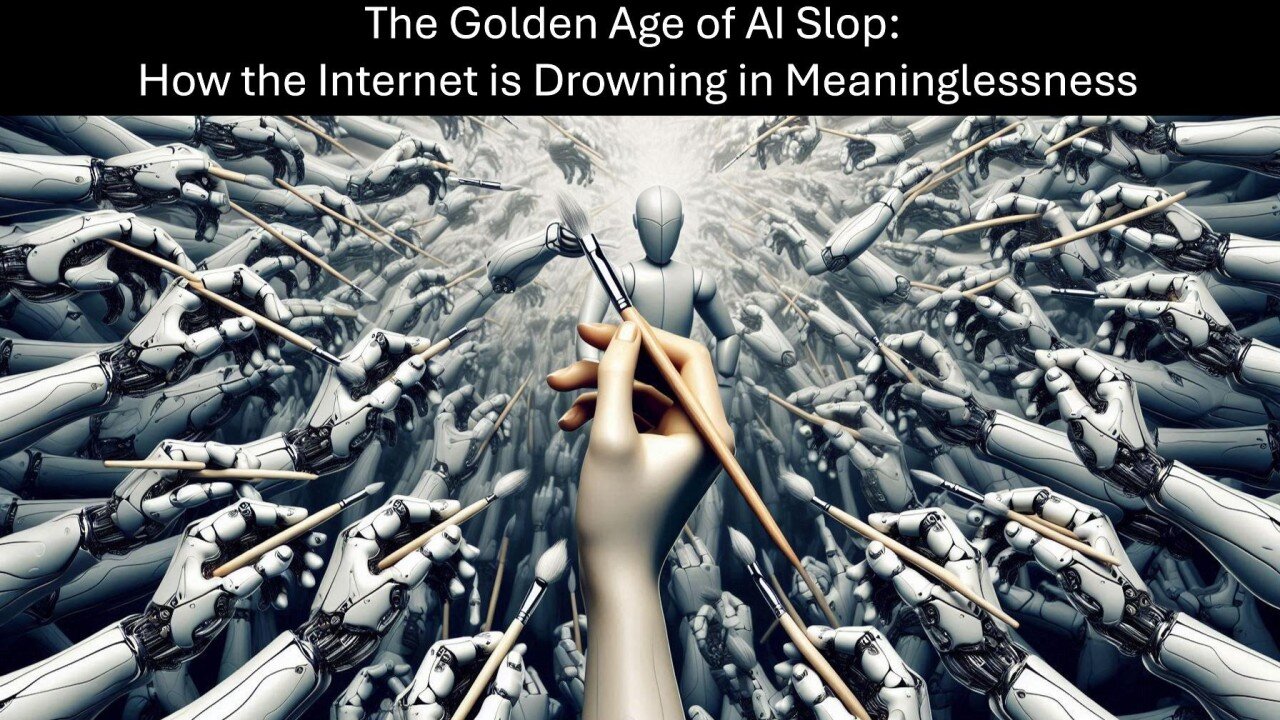
Leading researchers and policymakers warn that we may be rapidly approaching a tipping point: within a few years, the volume and sophistication of disinformation will so overwhelm the system that “nothing seen online can be trusted”.
As one recent summit in India highlighted, social media is fast becoming the primary information source for many people, yet many lack the digital-literacy skills needed to identify manipulated or misleading content.
This is especially acute in semi-urban and rural regions where regulation and user education are weak.
Generative artificial-intelligence tools have amplified the problem.
These technologies can create believable fake text, images and audio at scale, enabling malicious actors to impersonate voices, fabricate events or hijack narratives.
The lifecycle of a disinformation campaign now includes creation, amplification via algorithmic recommendation systems, and persistence even after debunking.
The result: eroded trust in institutions, news media and each other.
Governments, media regulators and academics agree the stakes are high.
The World Economic Forum identifies disinformation as a top short-term global risk, capable of undermining democracy, social cohesion and public safety.
Regulatory frameworks are emerging — such as the European Union’s Digital Services Act and the United Kingdom Online Safety Act — yet they lag behind the speed of technological change.
Platforms and regulators alike are still adapting to features such as deep-fakes, AI-powered bots and recommendation systems that prioritise engagement over accuracy.
Much of the current business model of major platforms fuels the trend: algorithms reward polarity, sensationalism and rapid spread, while monetisation regimes profit from high volumes of user clicks regardless of veracity.
This dynamic creates strong incentives to produce and amplify misinformation, often with little accountability.
Meanwhile, platforms frequently outsource moderation or rely on opaque systems whose inner workings are not subject to independent audit.
Some experts argue that the challenge is not simply one of more factual correction, but of rebuilding an entire trust ecosystem.
Media-literacy programmes, transparent algorithmic design, friction in viral spread and better user tools are often cited as part of the solution.
For example, one research framework categorises interventions into three stages: those that prepare people to resist manipulation, those that curb the spread and those that respond to false narratives once they are live.
Yet despite these prescriptions, many observers remain pessimistic about the short-term outlook.
One government-commissioned study warned that as digital manipulation becomes automated and scalable, the cost-benefit calculation for bad actors becomes ever more favourable — meaning interventions may struggle to keep pace unless structural changes are made.
The question now is whether societies will act in time.
Can platforms alter their profit incentives?
Will governments enforce meaningful regulation without stifling free speech?
Can individual citizens acquire the skills needed to discern credible from fabricated?
Without serious intervention, the possibility of a world where “nothing online can be trusted” moves closer, and with it the very possibility of informed democracy.
In that sense, the crisis of online truth is not just a technological problem — it is a social, political and moral one.
And the window for action is narrowing.

The outage left numerous platforms—including X (formerly Twitter), ChatGPT, Canva, and other high-profile services—unavailable or suffering elevated error rates for several hours.
Cloudflare confirmed the incident, reporting that a spike in unusual traffic to one of its services triggered errors across its network.
The company emphasised that this was not a malicious cyber-attack, but rather an internal configuration change or maintenance event that propagated system instability.
The root cause appears to have been a malfunction in Cloudflare's traffic-management subsystem following a routine change in the configuration file or automated process.
This malfunction caused widespread disruptions in the global edge network, affecting sites and apps that rely on Cloudflare’s routing, caching and security infrastructure.
Platforms directly impacted included X, ChatGPT, Canva, and Grindr, among others, with users reporting error messages that ranged from brief lag to minutes-long service outages.
Businesses and individuals across sectors described frustration at being unable to access tools used as part of everyday activity.
Following intensive remediation efforts, Cloudflare declared the incident resolved later in the day, though it cautioned that some users may experience residual effects or elevated error rates while monitoring continues.
Security experts say the outage underscores a broader vulnerability in the internet’s architecture: the concentration of foundational infrastructure in the hands of a few companies.
For organisations, the event has reinforced the need to consider vendor diversification and resilience strategies.
For everyday users, it serves as a reminder of how deeply integrated such infrastructure is into digital experience, even when operating quietly in the background.
Cloudflare has pledged a full post-mortem review, promising to enhance its configuration controls, strengthen safeguards, and rebuild customer trust.
Although no malicious activity has been identified, the incident raises important questions about dependency, oversight and redundancy within global web systems.
The internet may be back online, but the lessons about fragility remain.
Guests can look forward to snowfall on Main Street, U.S.A., themed drone shows at the Castle of Magical Dreams and specially dressed characters across the park.
In the newly opened World of Frozen area, Arendelle is dusted with snow and decorated with glittering trees, while Kristoff and his reindeer Sven appear as a dramatic ice sculpture as part of the “Sven-tastic Surprise” experience where visitors help animate the display.
Iconic Disney characters throughout the resort have adopted festive outfits.
In Toy Story Land, Woody, Buzz Lightyear and Jessie don their Christmas attire, while Duffy & Friends welcome guests in cozy winter wardrobes at their play house.
Fantasyland invites families to meet Santa Mickey, Santa Goofy and Santa Stitch & Angel for seasonal greetings.
Evening entertainment includes the tree-lighting ceremony “A Holiday Wish-Come-True” on Main Street, U.S.A., featuring snowfall, castle projections and a drone aerial display inspired by the resort’s milestone year.
Starting 22 November, the Castle of Magical Dreams becomes the stage for “Disney Christmas Live in Concert!”, featuring Cantopop stars and the Hong Kong Children’s Choir over three festive weekends.
On 31 December the park hosts a New Year’s Eve countdown party across Tomorrowland and Adventureland followed by “Momentous: Party in the Night Sky”, an exclusive nighttime production at the castle to ring in 2026.
Holiday dining features seasonal delights at Ye Olde Christmas Market and the Golden Crocus Inn in World of Frozen.
A new themed Mickey popcorn bucket and a range of limited-edition merchandise, including Zootopia-inspired treats and souvenirs ahead of the film’s release, are also available.
With its 20th anniversary and festive season rolled into one, the resort invites families and visitors to join a celebration that blends nostalgic Disney magic with new experiences through early January next year.
Organised by local collective Blank Space Studio, the volunteer-run festival has pledged that 100 per cent of net box-office revenue (after ticketing charges) will go directly to participating artists, a model that leaders say places artistic control and financial transparency at its core.
The initiative also emphasises accessibility: tickets are priced under HK$200 (approximately US$26) and offer a “pay-more-if-you-can” option, while the selection process invited open applications and took no fixed theme, ensuring a broad and decentralised creative platform.
Programme genres span theatre, dance, multidisciplinary live experiences and family-friendly shows, with English and Chinese subtitling or non-verbal works included to encourage wider engagement.
Speakers emphasised that the festival operates on a self-funded model with volunteers and has intentionally avoided sponsorship or government funding to maintain independence.
The festival’s website notes that alongside performances, artist talks and workshops will be held, and international fringe festival delegates will be invited to help artists build connections abroad.
By scheduling the festival over a compact four-day weekend and selecting venues across the Tai Po Arts Centre — a white-box theatre, black-box studio, dance space and outdoor area — the organisers aim to reach a diverse local audience outside the usual central-district arts circuit.
Emerging artists and works-in-progress are deliberately included to foster experimentation.
Selected artists will gain two performance slots and receive ticket income, technical support and a free festival pass to attend peer shows.
The launch of Horizons Festival reflects growing momentum for fringe-scale arts in Hong Kong and responds to demand from local artists for platforms linking to international touring circuits.
The festival emerges even as the city’s established arts events continue to evolve.
It presents an opportunity for fresh voices and independent production to flourish within Hong Kong’s cultural ecology.
With ticket sales already live and volunteer recruitment underway, the festival expects to announce its full line-up and artist roster imminently.
Technical rehearsal and production support are scheduled in the weeks leading up to the opening weekend, and the organisers invite the public to join in the spirit of open-access and creative exchange.